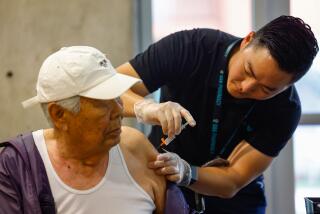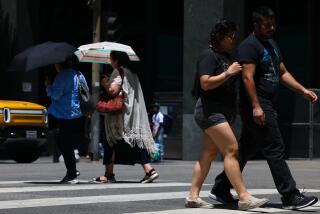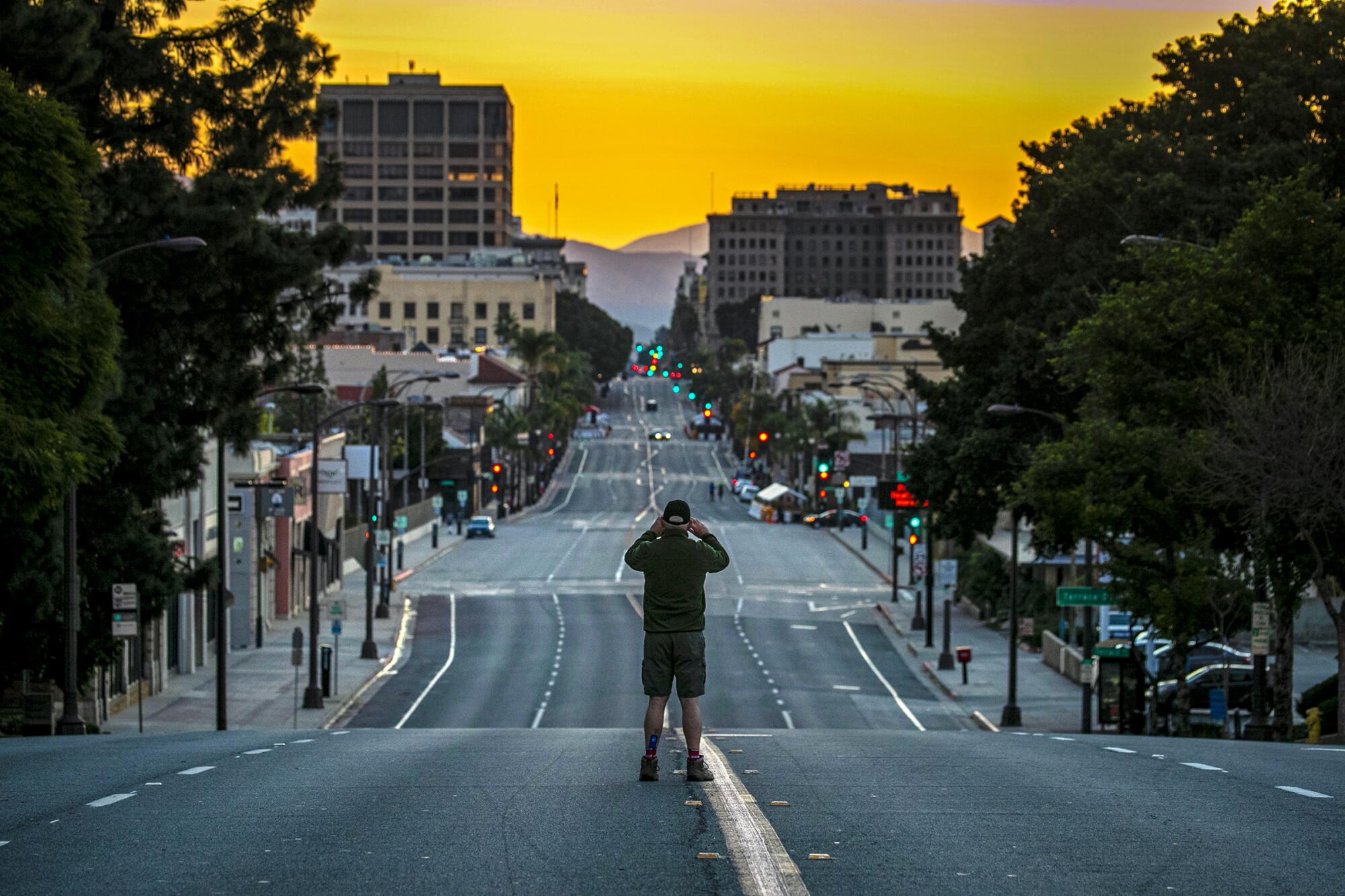
- Share via
With the arrival of COVID-19 vaccines, life in 2021 returned to something resembling normal, with stadiums again full, lockdowns eased and kids back in class. But there were also plenty of events to remind us that true normal still remains a way off.
JANUARY
Jan. 1: At last, 2020 is over. But California’s COVID-19 infections are rampant. Restaurants are closed, tourism paused and the city of Pasadena is eerily quiet without a parade or football game.
Jan. 5: The Rev. Raphael Warnock and Jon Ossoff make history by winning their respective Senate races in Georgia’s runoff election. Their victories hand control of the Senate to the Democrats.
Jan. 6: Violent supporters of President Trump storm the U.S. Capitol. The riot delays but does not stop Congress’ constitutionally mandated count of electoral college votes.
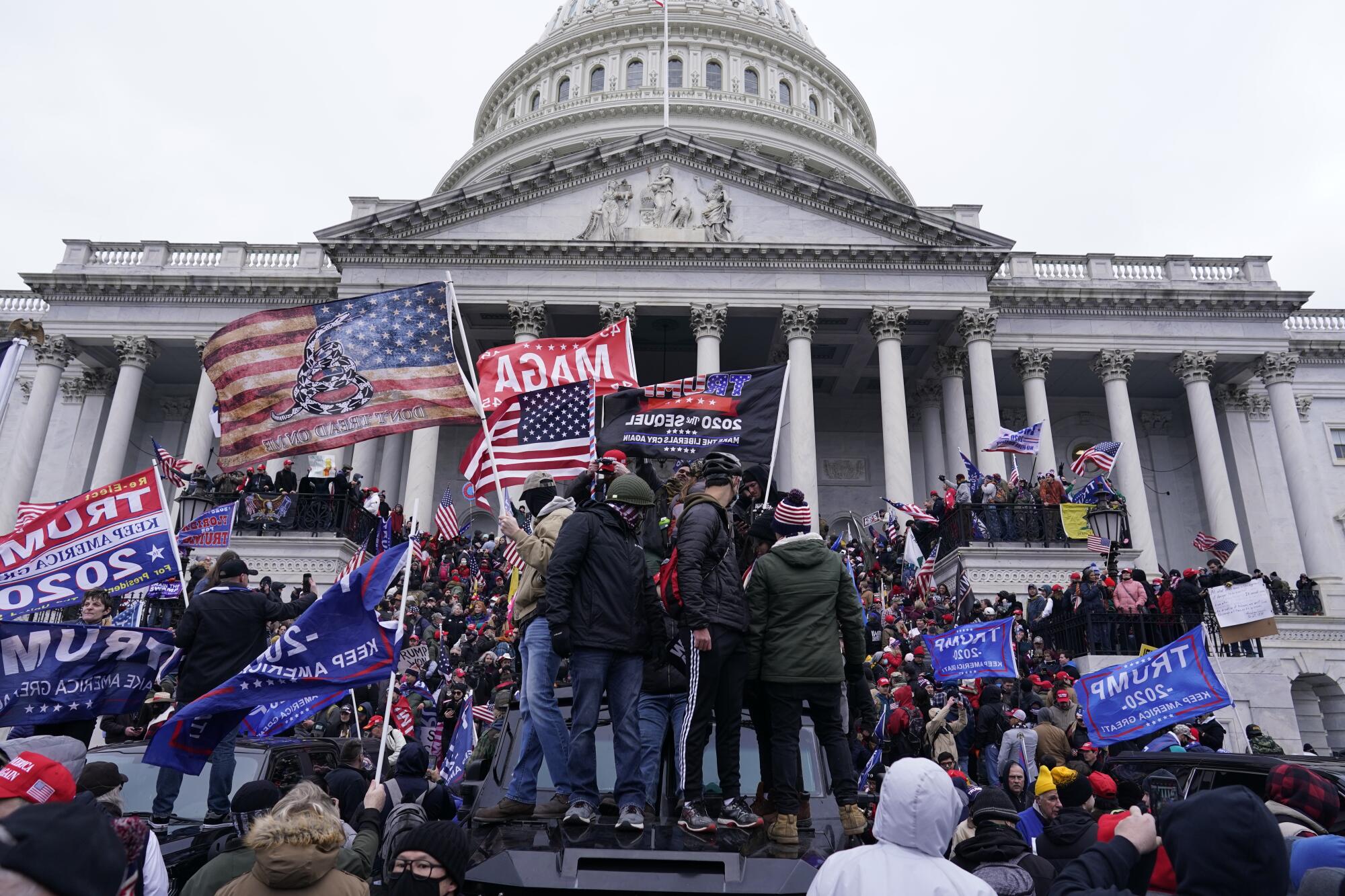
Jan. 7: Tommy Lasorda, the Dodgers legend who won two World Series titles as manager during his 70-year association with the franchise, dies of a heart attack. He was 93.
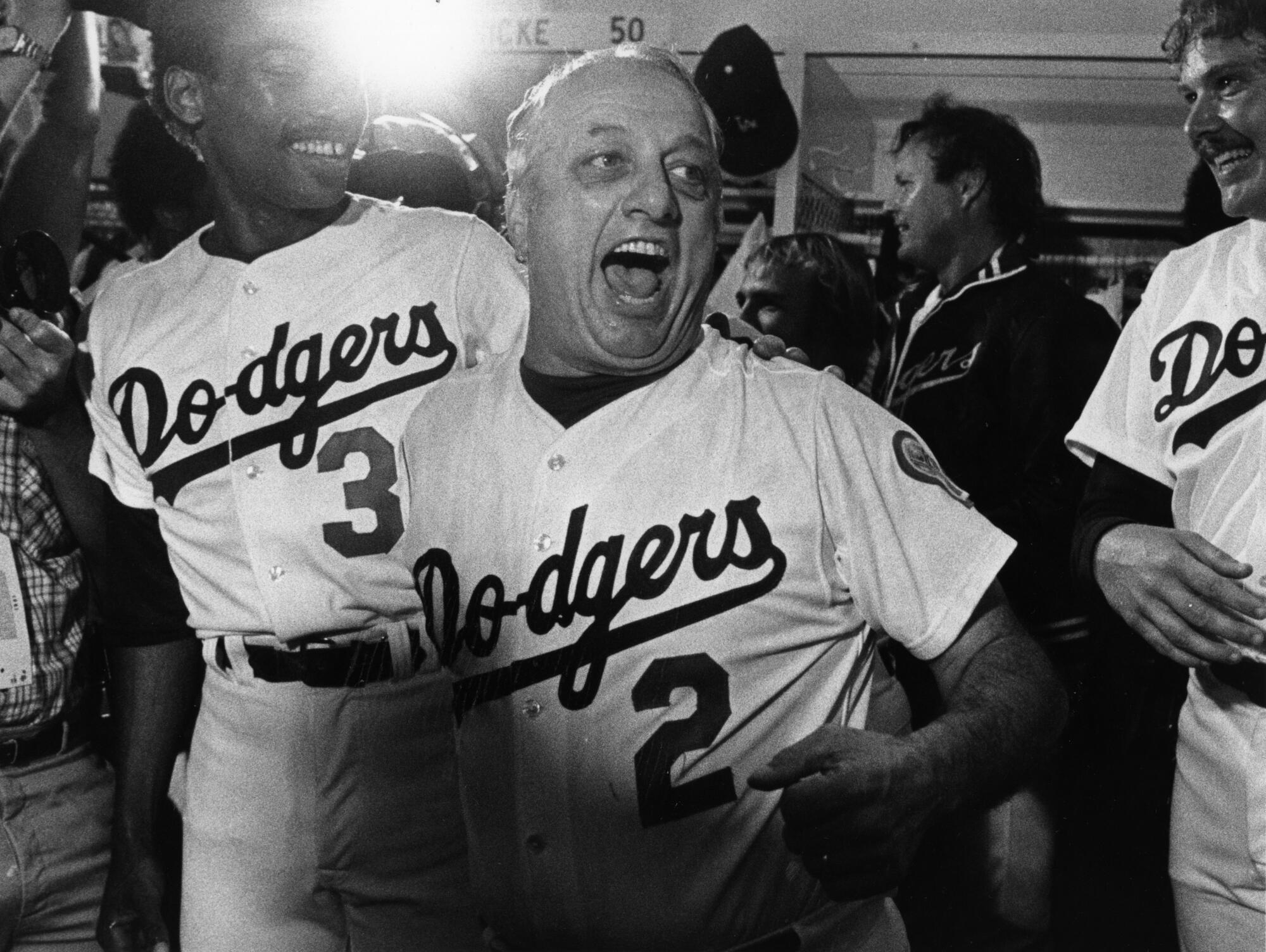
Jan. 8: Facing pressure from the public and its own outraged employees, Twitter says it “permanently suspended” President Trump’s account.
Jan. 13: Donald Trump becomes the first president in U.S. history to be impeached twice, as a bipartisan House majority votes to charge him with inciting an insurrection by his supporters.
Jan. 16: Phil Spector, the once-acclaimed record producer who was in prison for second-degree murder, dies at age 81.
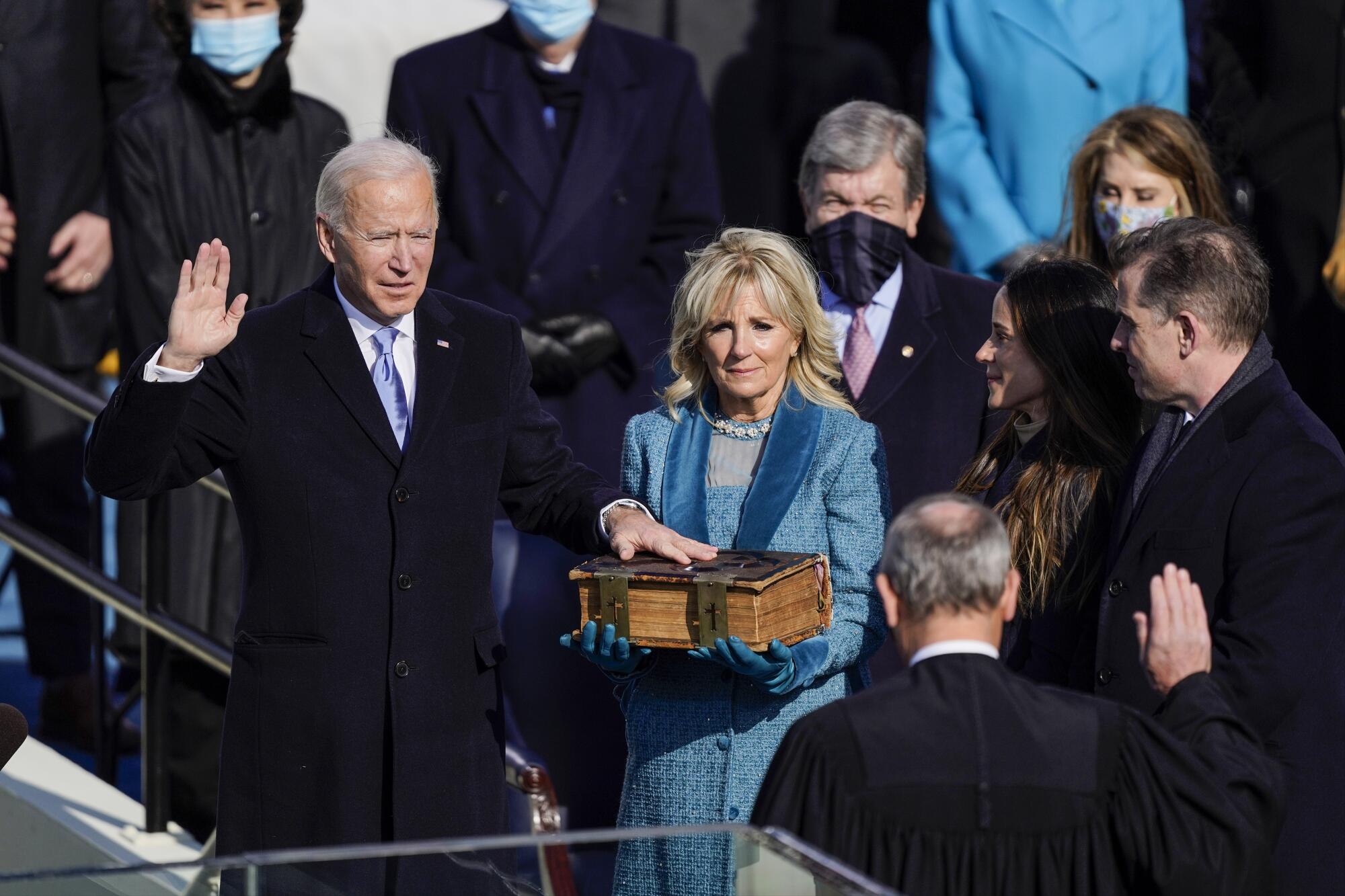
Jan. 20: Joseph Robinette Biden Jr. is inaugurated as the 46th president of the United States. Kamala Harris is sworn in as vice president, the first woman and Black person to hold the office.
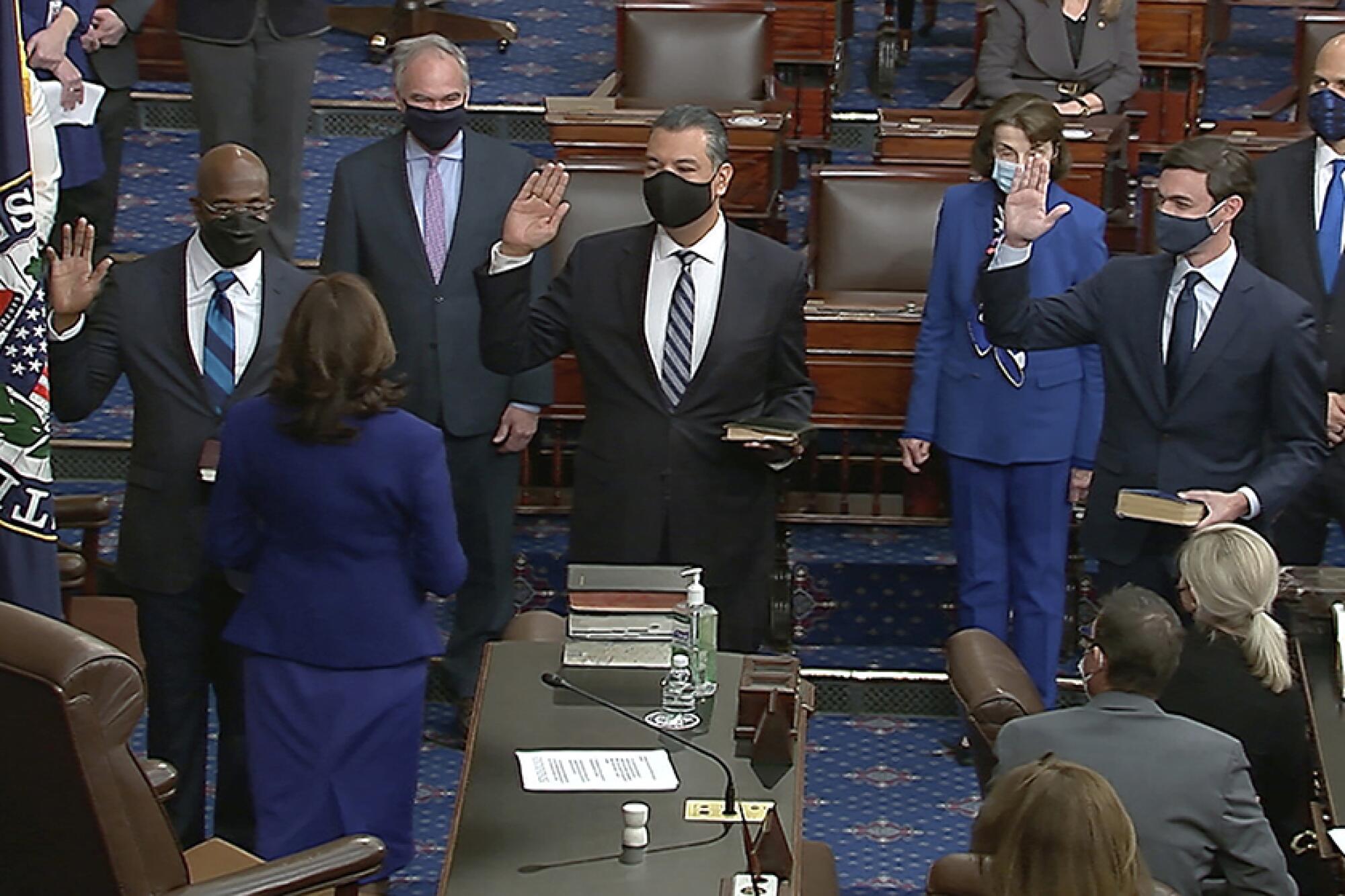
Jan. 20: With his mother’s Bible in hand and his political mentor at his side, Alex Padilla becomes the first Latino to represent California in the U.S. Senate.
Jan. 22: Hank Aaron, the baseball great who broke Babe Ruth’s home run record, dies at 86.
Jan. 23: Talk show legend Larry King dies at age 87.
Jan. 25: President Biden ends former President Trump’s ban on transgender individuals serving in the military.
Jan. 28: Actor Cicely Tyson, who insisted that roles for Black women reflect a sense of power and grace, dies at 96.
FEBRUARY
Feb. 2: The Senate confirms Pete Buttigieg as Transportation secretary, the first openly gay person to serve in a Cabinet post.
Feb. 2: Amazon founder Jeff Bezos announces that he will step down later in the year as the company’s chief executive, a role he has had for nearly 30 years.
Feb. 5: Actor Christopher Plummer, who played King Lear but was known by many as the captain in “The Sound of Music,” dies. He was 91.
Feb. 7: In what was billed as a Super Bowl for the ages, Tom Brady leads the Tampa Bay Buccaneers past quarterback Patrick Mahomes and the Kansas City Chiefs to secure his unprecedented seventh championship ring.
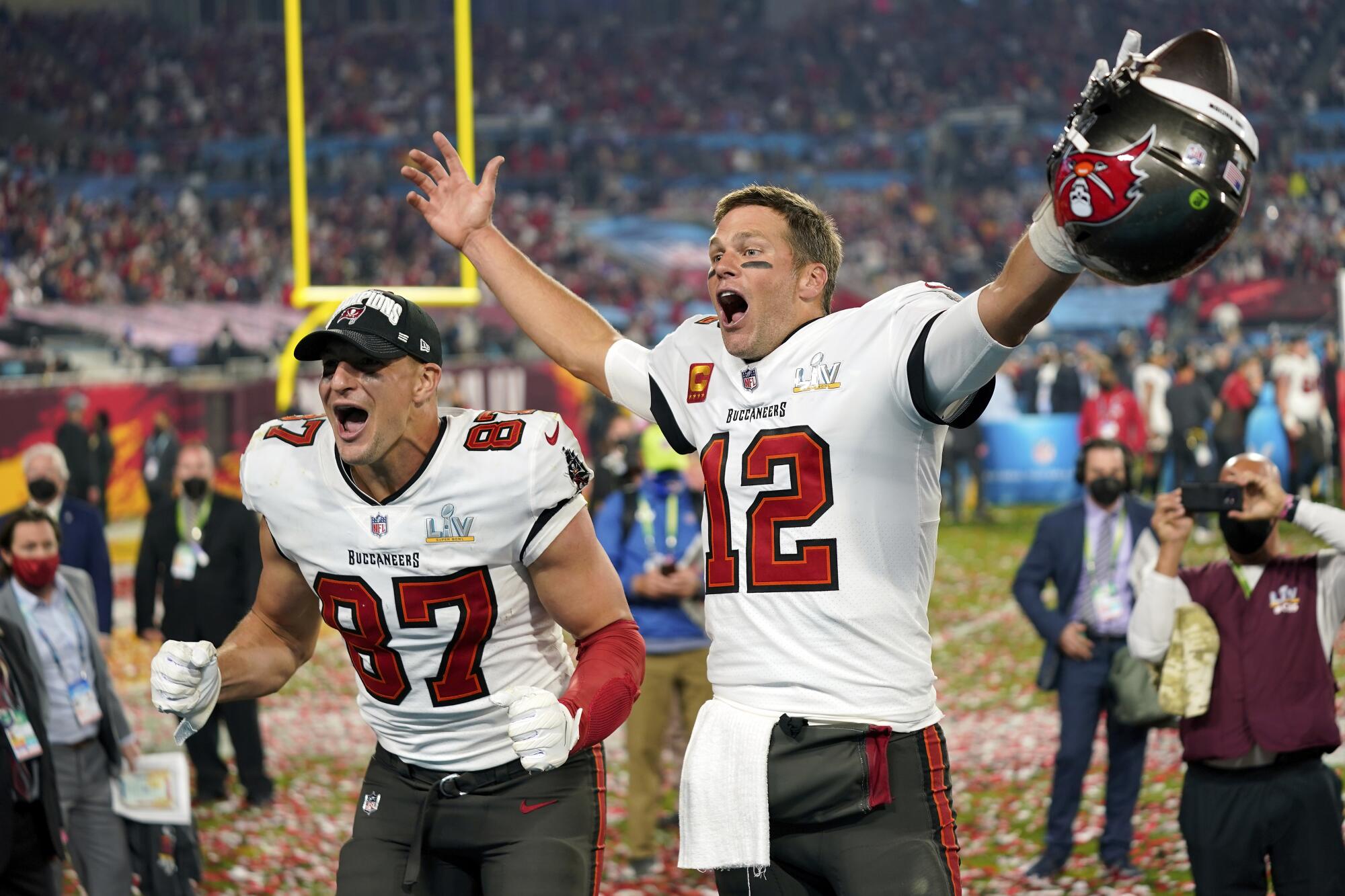
Feb. 7: Sarah Thomas caps her sixth NFL season by becoming the first woman to officiate in the Super Bowl.
Feb. 8: Former President Trump’s historic second impeachment trial begins.
Feb. 10: California has more COVID-19 deaths than any other state, a distinction reflecting both its large population and the ravages of a winter coronavirus wave.
Feb. 13: The Senate acquits former President Trump in his second impeachment trial, even as seven Republicans deliver a historic rebuke by joining Democrats in voting to convict him of inciting the deadly Jan. 6 insurrection.
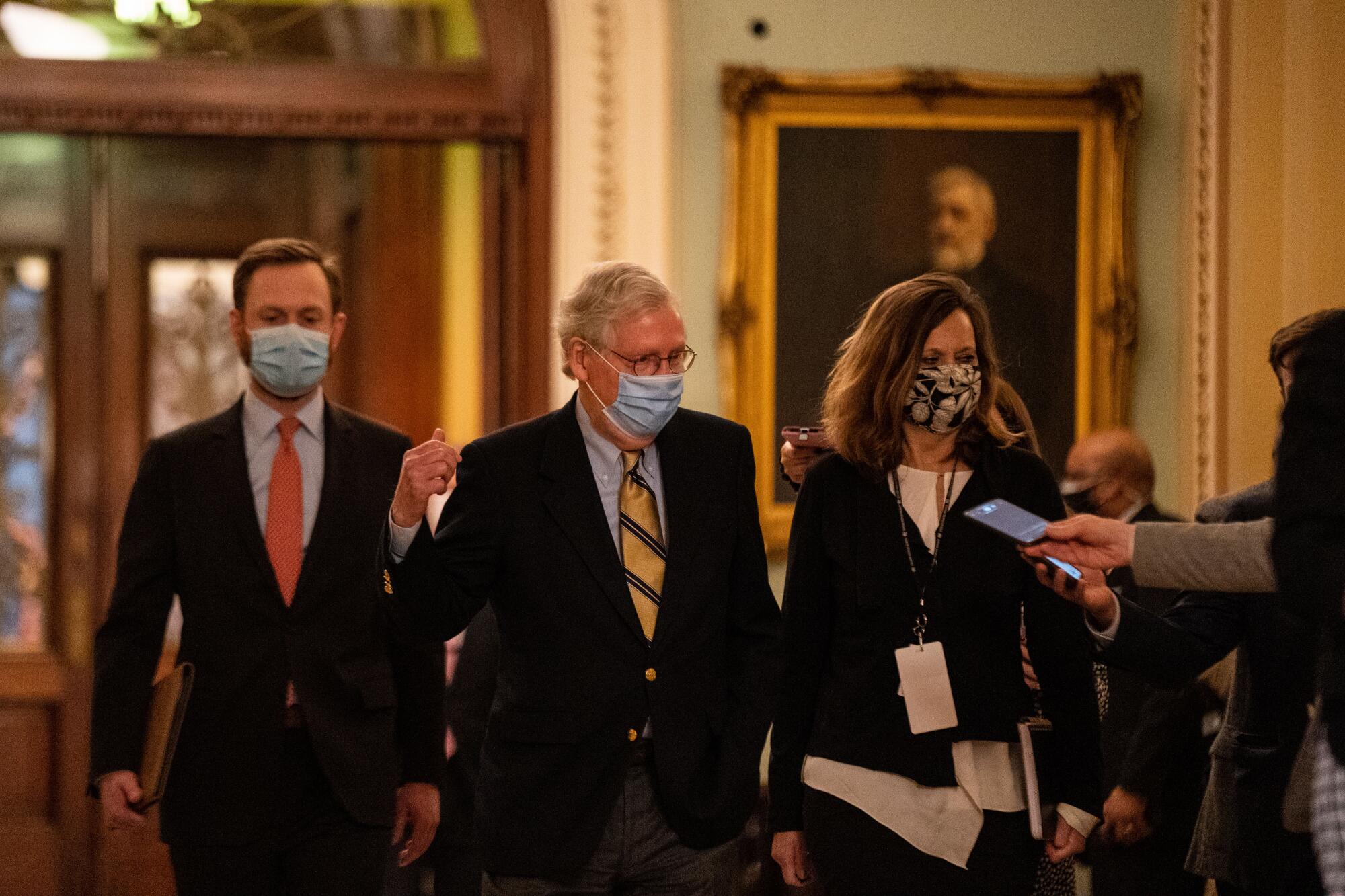
Feb. 15: The World Health Organization grants an emergency authorization for AstraZeneca’s COVID-19 vaccine.
Feb. 15: Los Angeles County elementary school campuses are cleared to fully reopen for the first time in nearly a year because of dropping coronavirus infection rates.
Feb. 16: Below-freezing weather hits Texas and Oregon, leading to blackouts, road closures and other disruptions to everyday life.
Feb. 17: Incendiary radio talk show host Rush Limbaugh dies 15 days after his last broadcast. He was 70.
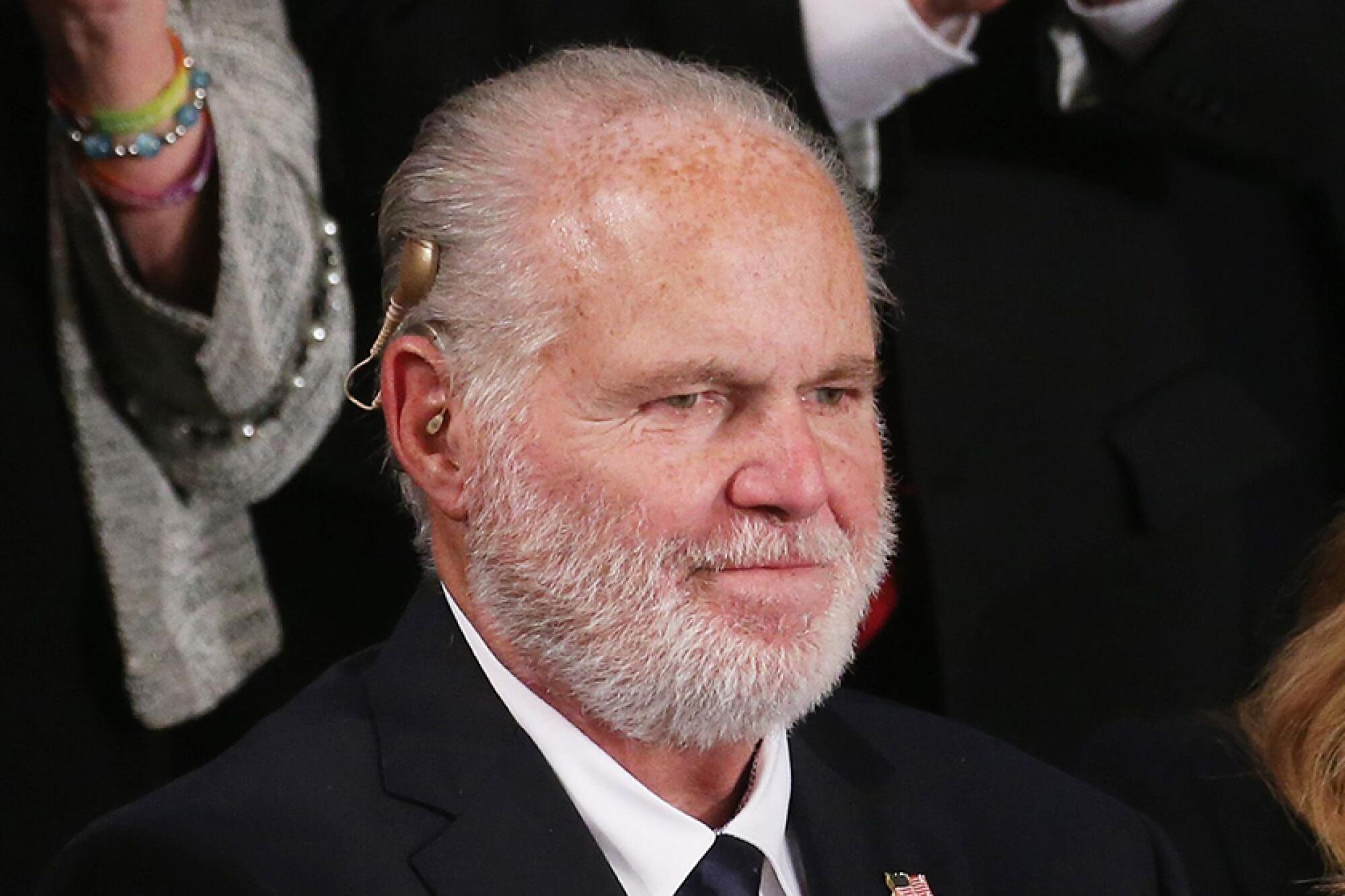
Feb. 22: The U.S. death toll from COVID-19 passes 500,000, higher than U.S. deaths in World War I, World War II and the Vietnam War combined.
Feb. 23: Tiger Woods is said to be “lucky to be alive” after he loses control of his SUV and crashes near Rancho Palos Verdes.
Feb. 27: The Food and Drug Administration authorizes the distribution of its third COVID-19 vaccine, the one-shot Johnson & Johnson.
Feb. 28: Chadwick Boseman, who died in 2020 at age 43, is posthumously awarded a Golden Globe for his role as the horn player Levee in “Ma Rainey’s Black Bottom.”
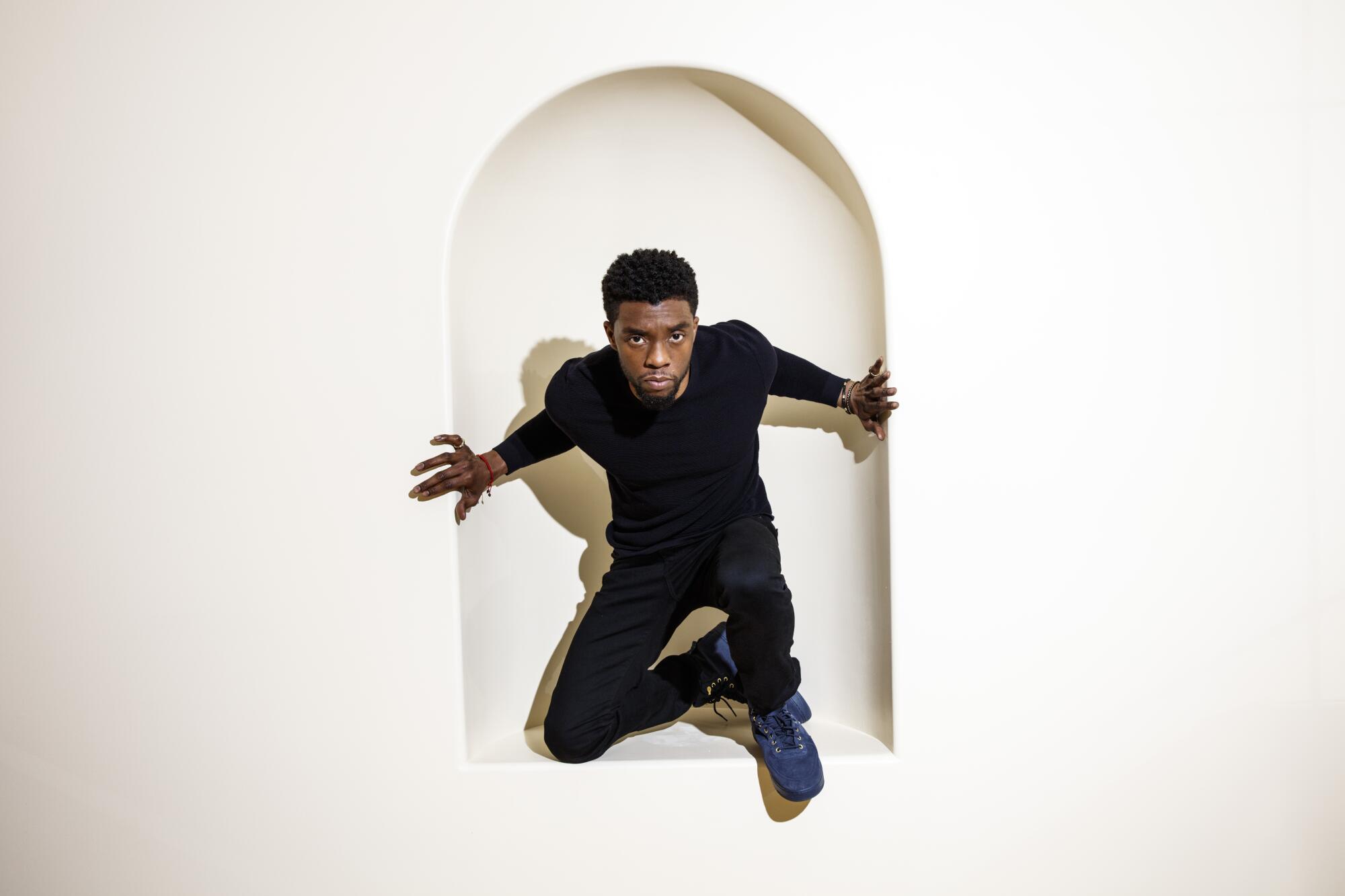
MARCH
March 2: President Biden says that the United States would have enough COVID-19 vaccines by the end of May to inoculate every American adult, two months earlier than previously expected.
March 11: President Biden signs a sweeping $1.9-trillion coronavirus relief package into law. On this date a year earlier, the World Health Organization declared the COVID-19 outbreak a pandemic.
March 14: Beyoncé becomes the woman with the most Grammy wins of all time when she earns her 28th award.
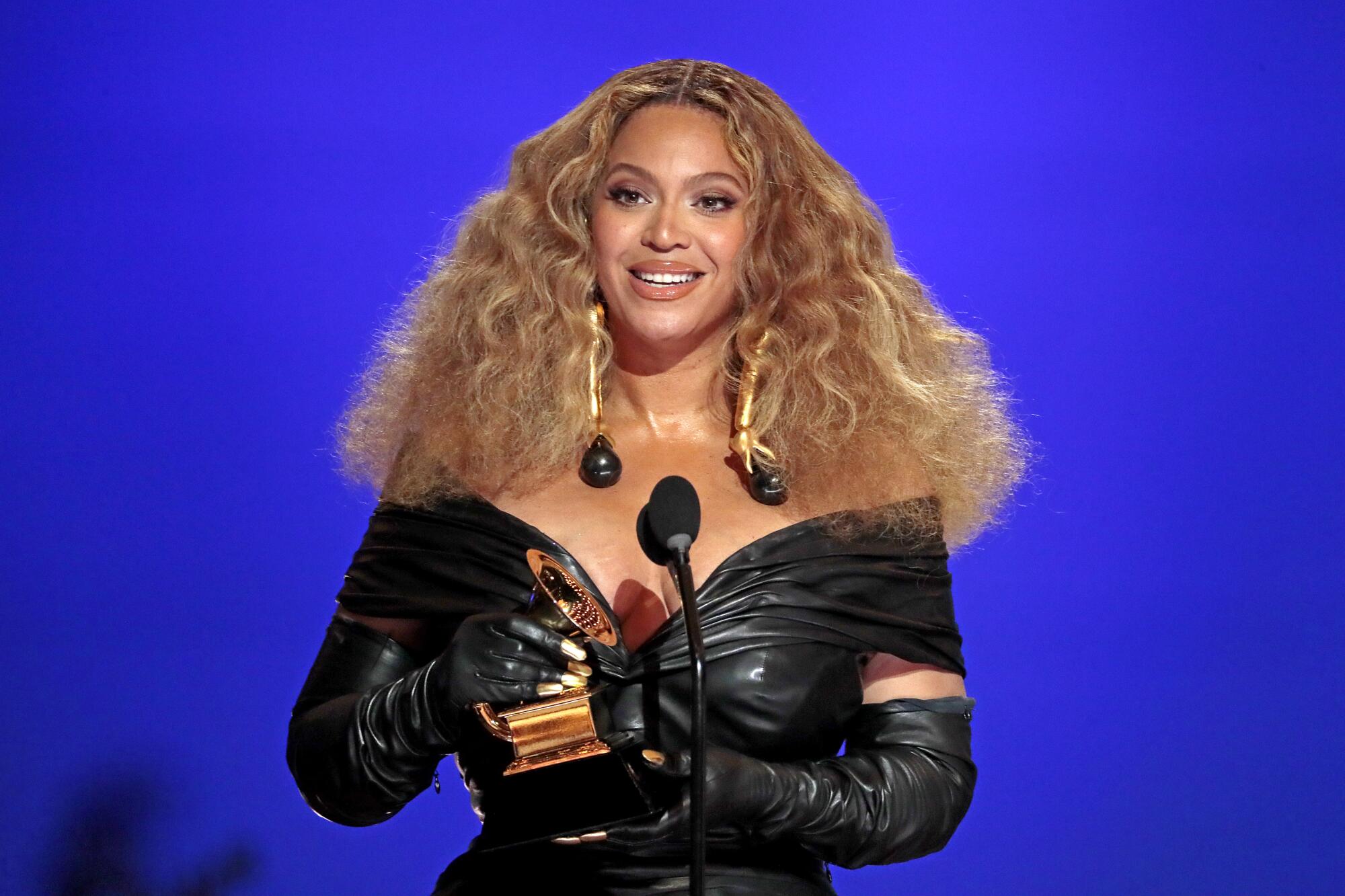
March 15: Former New Mexico congresswoman Deb Haaland becomes the first Native American confirmed to serve in a president’s Cabinet, a historic moment celebrated by American Indians throughout the country.
March 18: The state Board of Education unanimously approves a model curriculum to guide how the histories, struggles and contributions of Asian, Black, Latino and Native Americans will be taught at California’s K-12 schools.
March 23: A massive cargo ship runs aground in the Suez Canal, blocking the vital waterway and disrupting shipping worldwide.
March 29: The container ship that had plugged the Suez Canal is dragged off the channel’s banks and refloated, allowing ships to once again traverse the 120-mile waterway.

APRIL
April 11: Daunte Wright, 20, is shot and killed during a traffic stop by Brooklyn Center, Minn., Police Officer Kim Potter, who says she mistook her gun for a Taser. Potter was charged with second-degree manslaughter three days later.
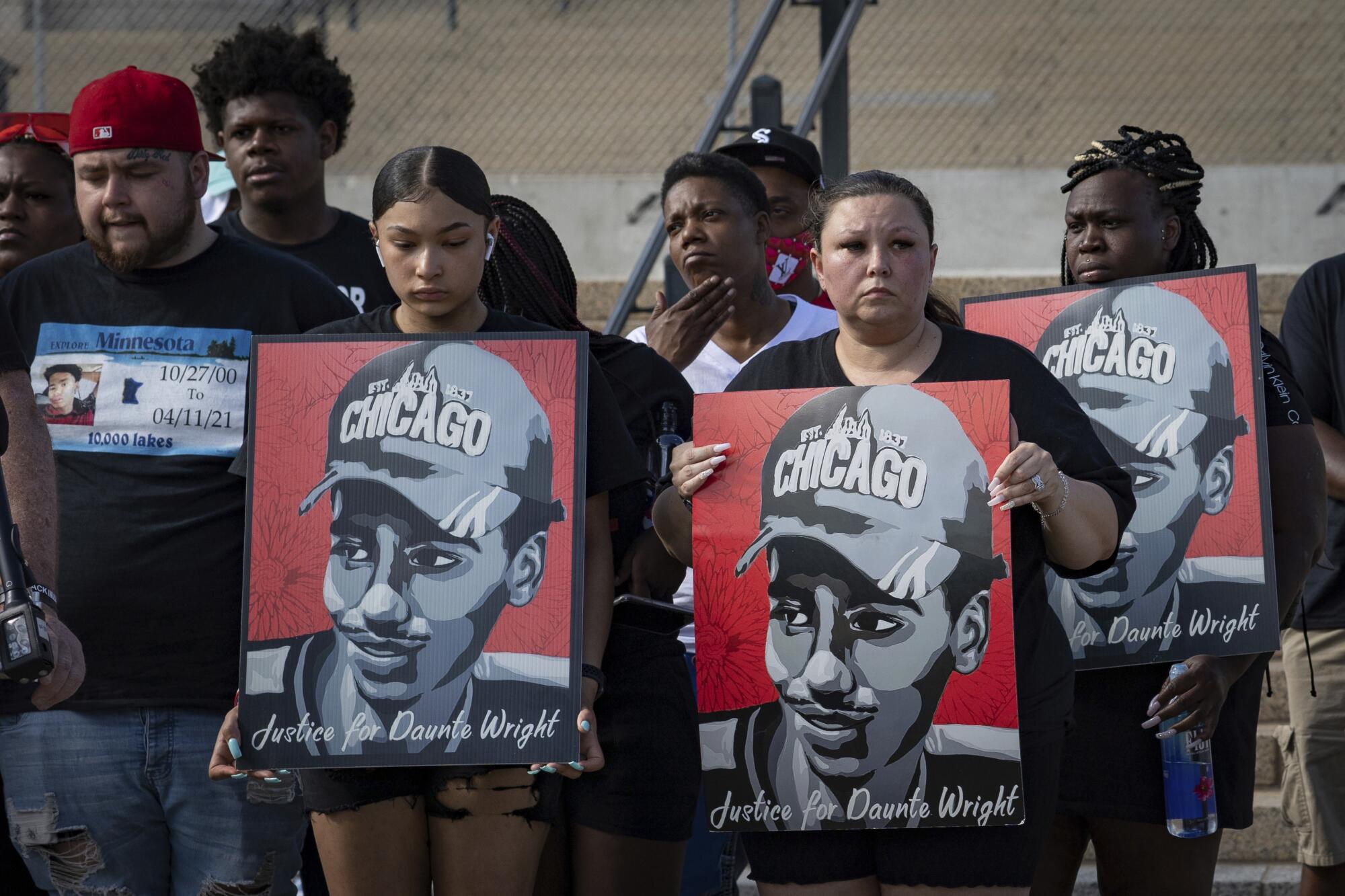
April 14: U.S. officials disclose President Biden’s plan to withdraw all remaining troops from Afghanistan by Sept. 11.
April 19: Half of all adults in the U.S. have received at least one COVID-19 shot, the Centers for Disease Control and Prevention announces.
April 20: Former Minneapolis Police Officer Derek Chauvin is convicted of murdering George Floyd.
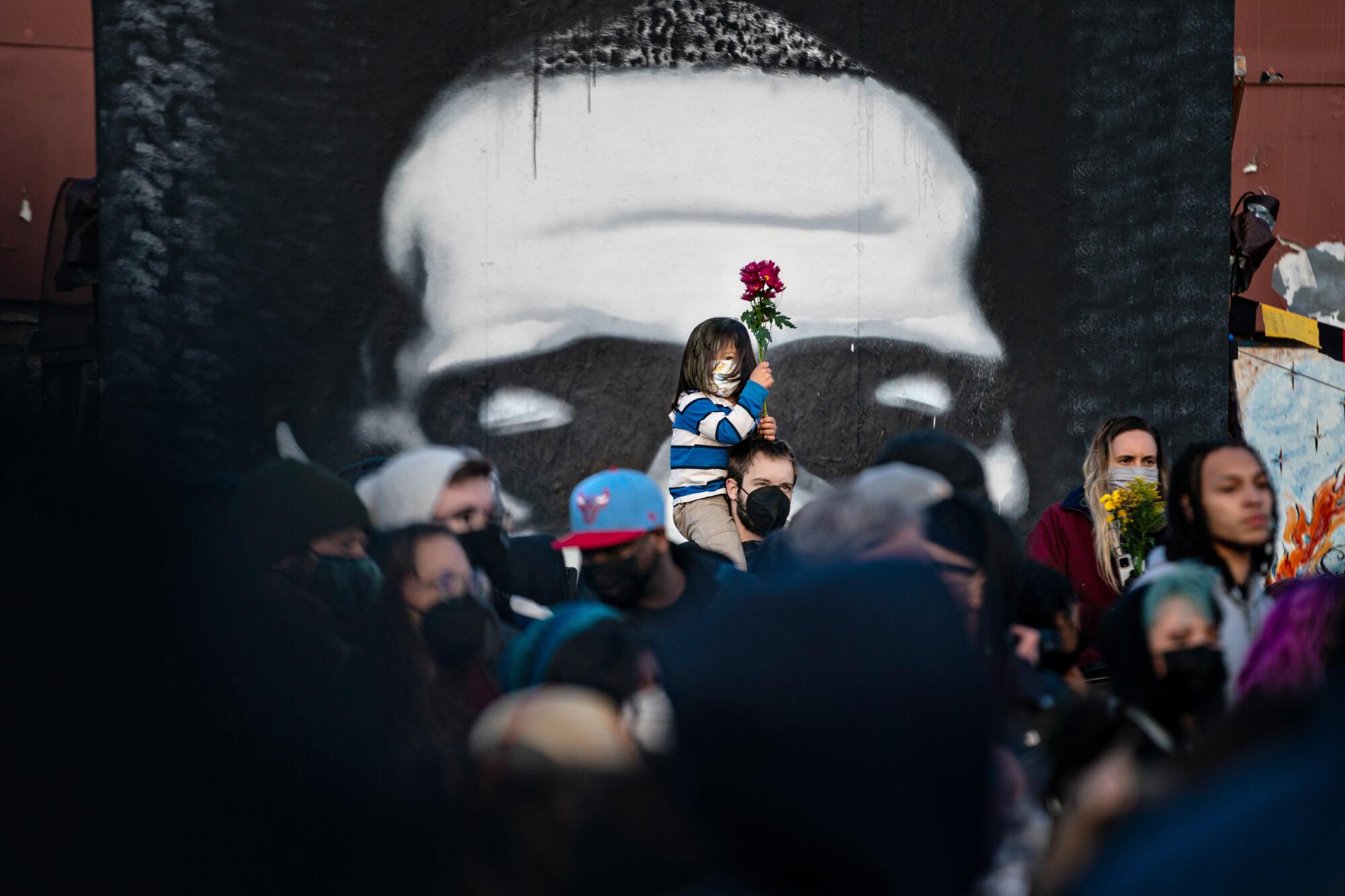
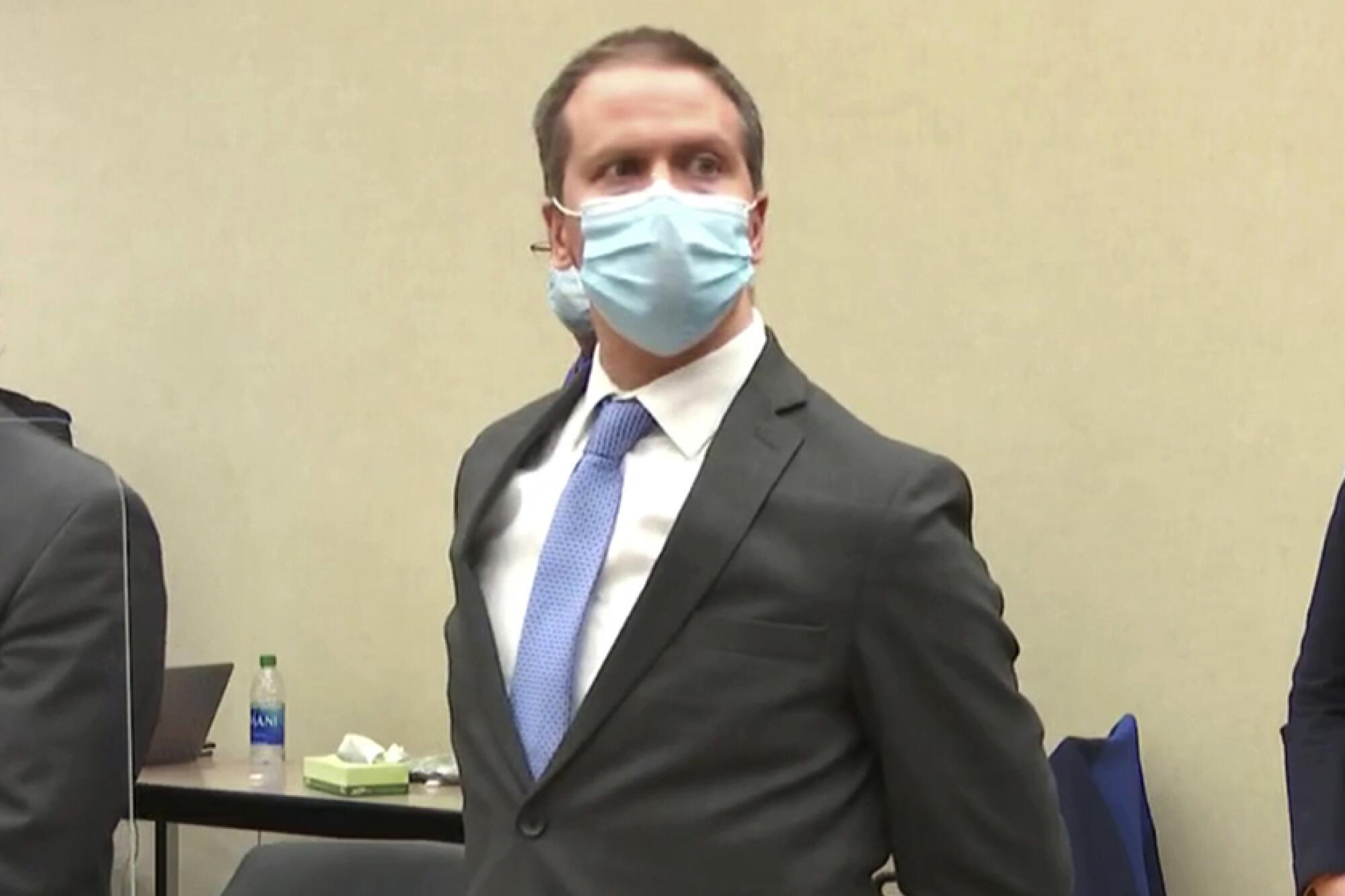
April 26: The Republican-led drive to remove California Gov. Gavin Newsom from office collects enough voter signatures to qualify for the ballot.
April 30: Disneyland reopens after an unprecedented 13-month closure caused by the COVID-19 pandemic.
MAY
May 10: COVID-19 vaccines finally are headed for more kids as U.S. regulators expand the use of the Pfizer-BioNTech shot to those as young as 12.
May 10: Capping months of intensifying controversy sparked by a Times investigation into the Hollywood Foreign Press Assn., NBC says that it will not air the Golden Globe Awards in 2022.
May 23: Phil Mickelson becomes the oldest player to win a major golf championship, doing so at 50 years, 11 months, a stunning triumph for a player seemingly in the sunset of his storied career.

May 26: In California’s largest mass shooting this year, a gunman opens fire at a San Jose light-rail yard, killing nine people and dying of an apparent self-inflicted gunshot wound.
May 30: John Krasinski’s thriller sequel “A Quiet Place Part II” opens over Memorial Day weekend to a pandemic-best $47.4 million. The film’s performance cheers a movie industry punished and transformed by the pandemic.
May 31: Tennis star Naomi Osaka withdraws from the French Open, citing a need to protect her mental health after announcing she would skip all further news conferences.

May 31: Hundreds gather in Tulsa, Okla., for an interfaith service to mark the centennial of the first day of one of the deadliest racist massacres in the nation.
JUNE
June 1: The Biden administration suspends Arctic refuge drilling rights sold in the final days of Donald Trump’s presidency.
June 3: Headline-grabbing attorney F. Lee Bailey, whose clients included O.J. Simpson and confessed Boston Strangler Albert DeSalvo, dies at age 87.
June 4: A federal judge overturns California’s three-decade-old ban on assault weapons, ruling that it violates the constitutional right to bear arms.
June 9: The sponsor of the Keystone XL crude oil pipeline announces that it is pulling the plug on the contentious project after Canadian officials failed to persuade President Biden to reverse his cancellation of its permit.
June 11: The 2021 Pulitzer Prizes honor several books that address Black history and underrepresented Americans in light of a tumultuous year of protests and racial reckoning following the murder of George Floyd.
June 13: In a political moment that seemed inevitable yet improbable, Israeli lawmakers brought down the curtain on the long-running rule of Benjamin Netanyahu, installing Naftali Bennett as prime minister.

June 17: President Biden signs legislation to make Juneteenth a holiday commemorating the end of slavery, the 12th federal holiday.
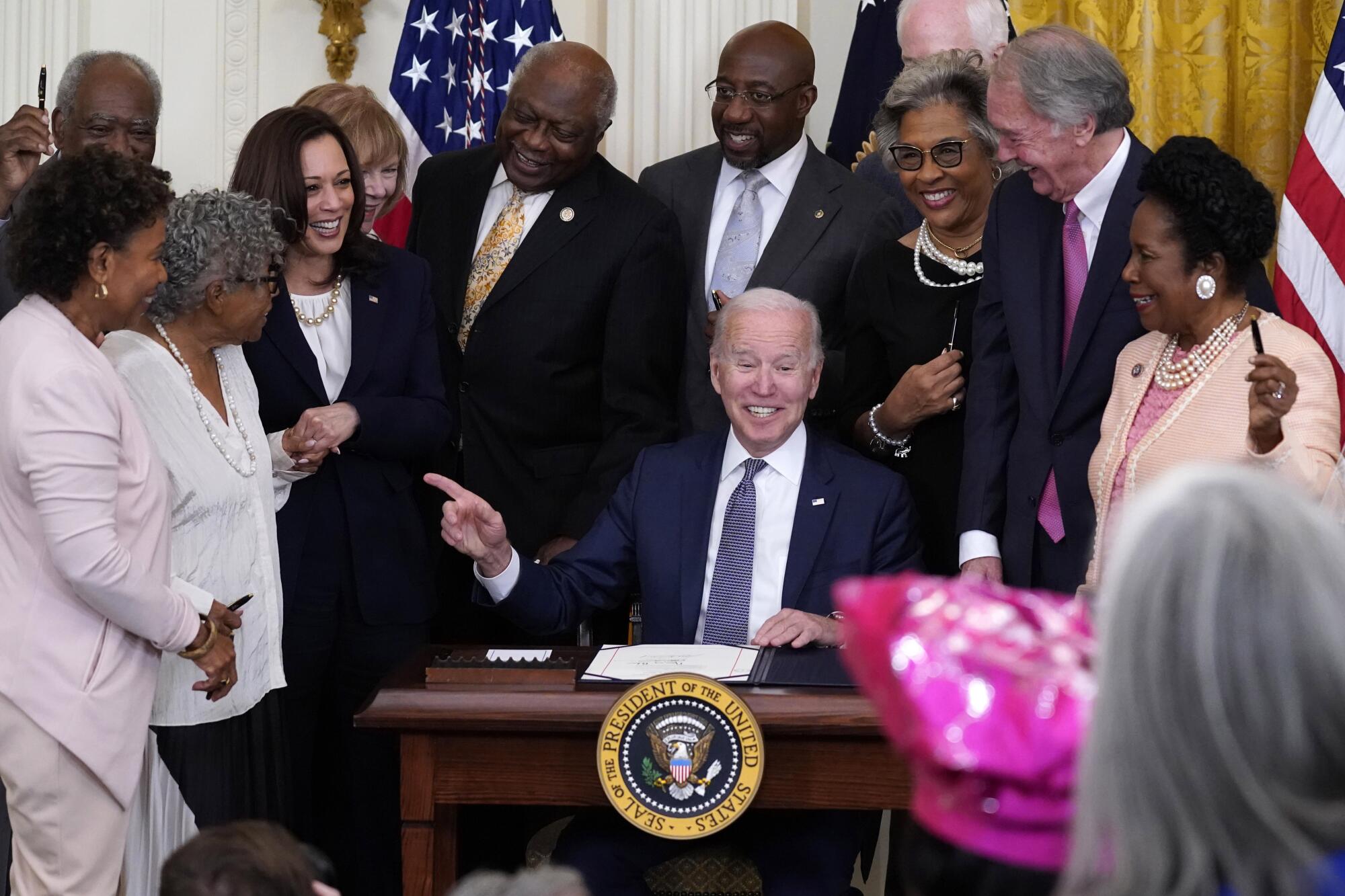
June 17: The Supreme Court issues two rulings: The first rejects a sweeping challenge to Obamacare pressed by Republican state attorneys general and backed by former President Trump. The second, in favor of Catholic Social Services in its fight over foster care in Philadelphia, holds that city officials discriminated against the church group because of its religious views.
June 18: California launches a COVID-19 vaccine verification system that provides digital replicas of the traditional wallet-size paper cards.
June 23: John McAfee, the antivirus software pioneer turned anti-government cryptocurrency promoter and frequent fugitive from the law, is found dead in his prison cell in Spain. He was 75.
June 24: House Speaker Nancy Pelosi (D-San Francisco) says she will create a House select committee to study the Jan. 6 insurrection after the Senate failed to create a bipartisan commission.
June 24: The Biden administration extends the nationwide ban on evictions for 30 days to help tenants who are unable to make rent payments during the COVID-19 pandemic.
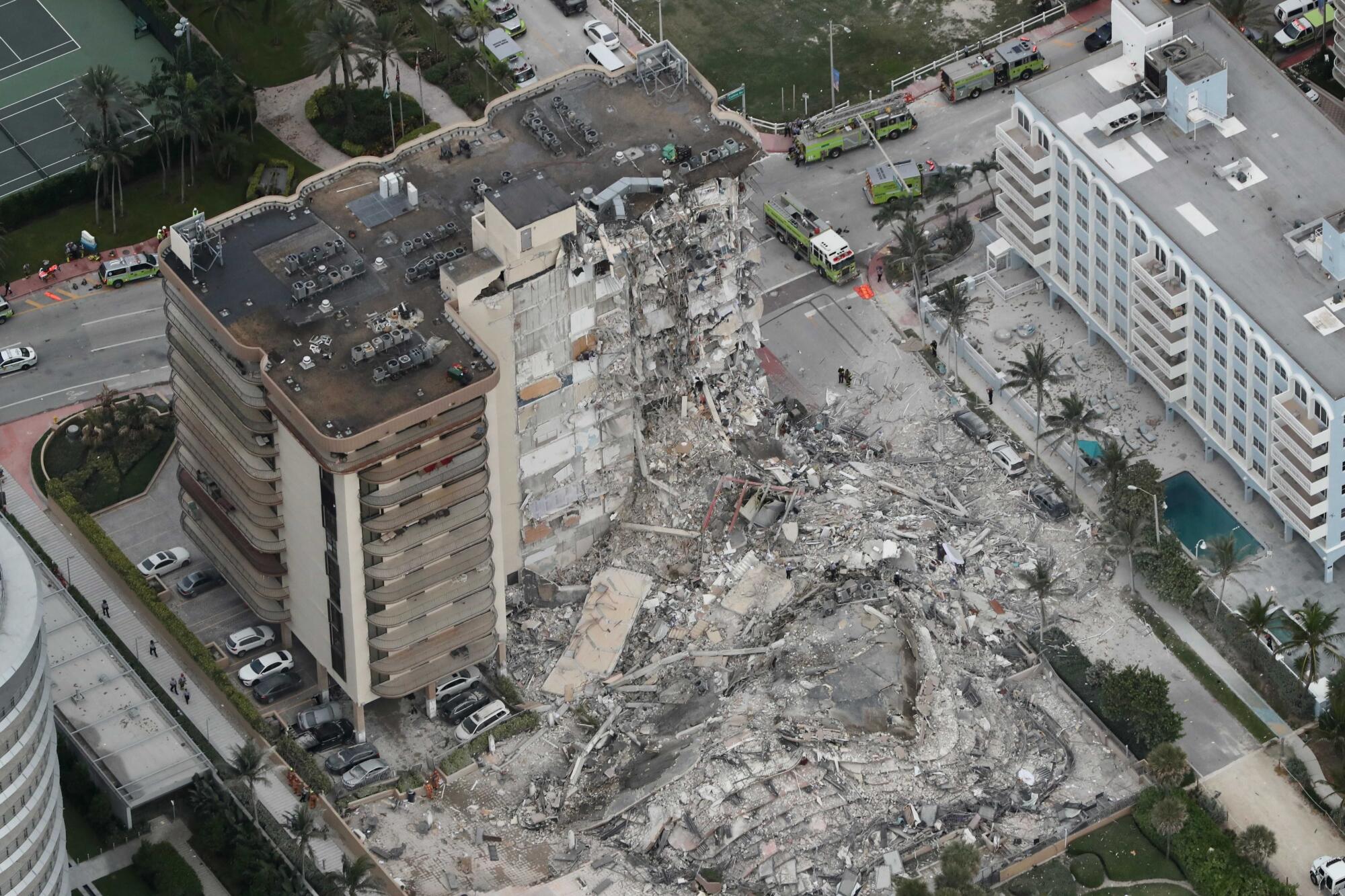
June 24: A condominium complex in Surfside, Fla., collapses in the middle of the night, leaving dozens dead and many more missing.
June 25: Former Minneapolis Police Officer Derek Chauvin is sentenced to 22½ years in prison for the murder of George Floyd, whose dying gasps under Chauvin’s knee led to the biggest outcry against racial injustice in the U.S. in decades.
June 29: The Supreme Court leaves in place a nationwide ban on evictions enacted to protect millions of tenants unable to pay rent during the COVID-19 pandemic.
June 30: Bill Cosby is freed from prison after Pennsylvania’s highest court overturns his sexual assault conviction, a stunning turnaround in a case that had marked the first high-profile celebrity trial in the #MeToo era.
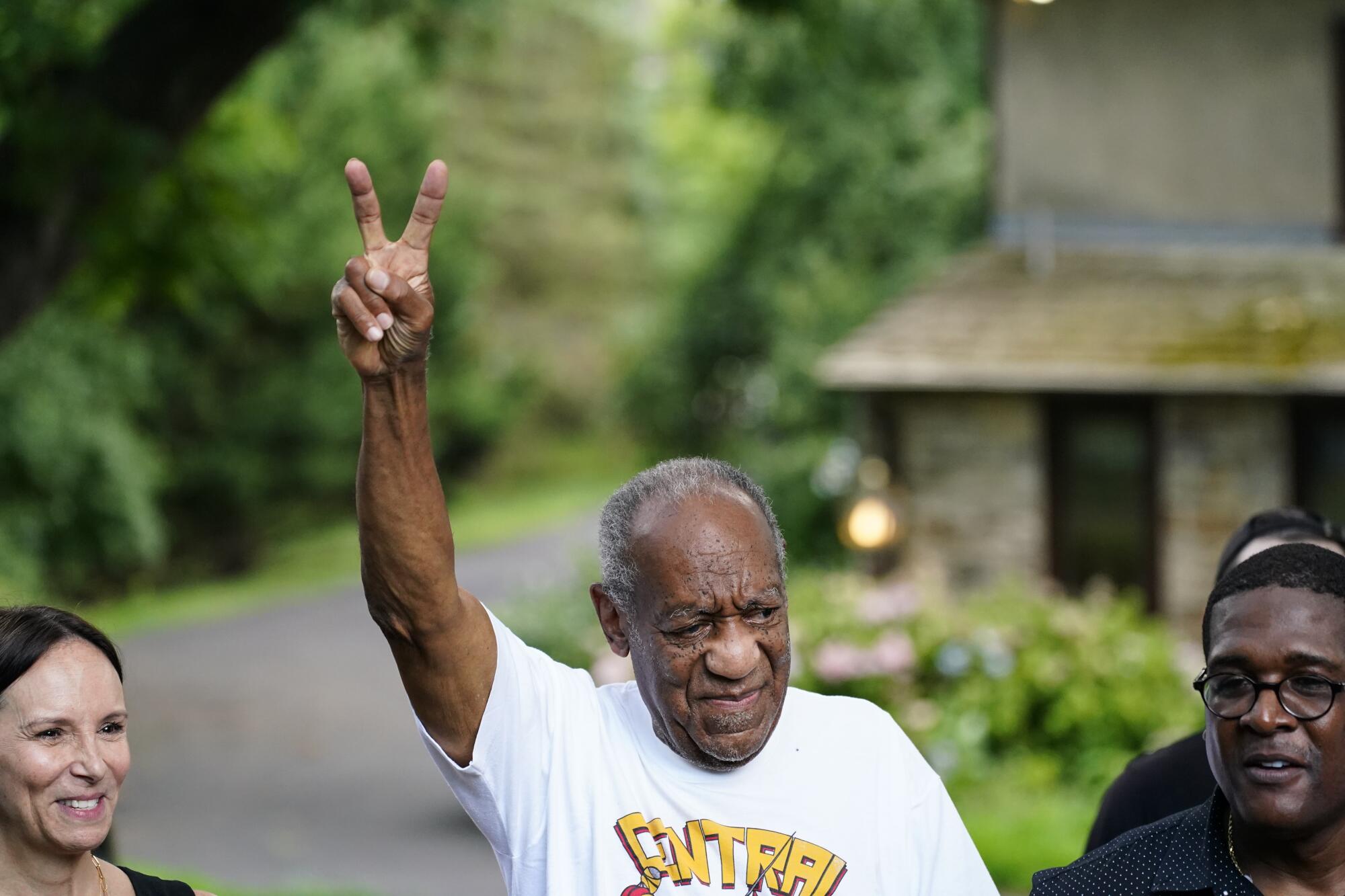
June 30: Two-time Defense secretary and one-time presidential candidate Donald Rumsfeld dies. He was 88.
June 30: A major explosion in South Los Angeles damages homes and injures 17 people, as a bomb squad attempts to safely detonate explosives that had been seized from a home along with about 5,000 pounds of illegal fireworks.
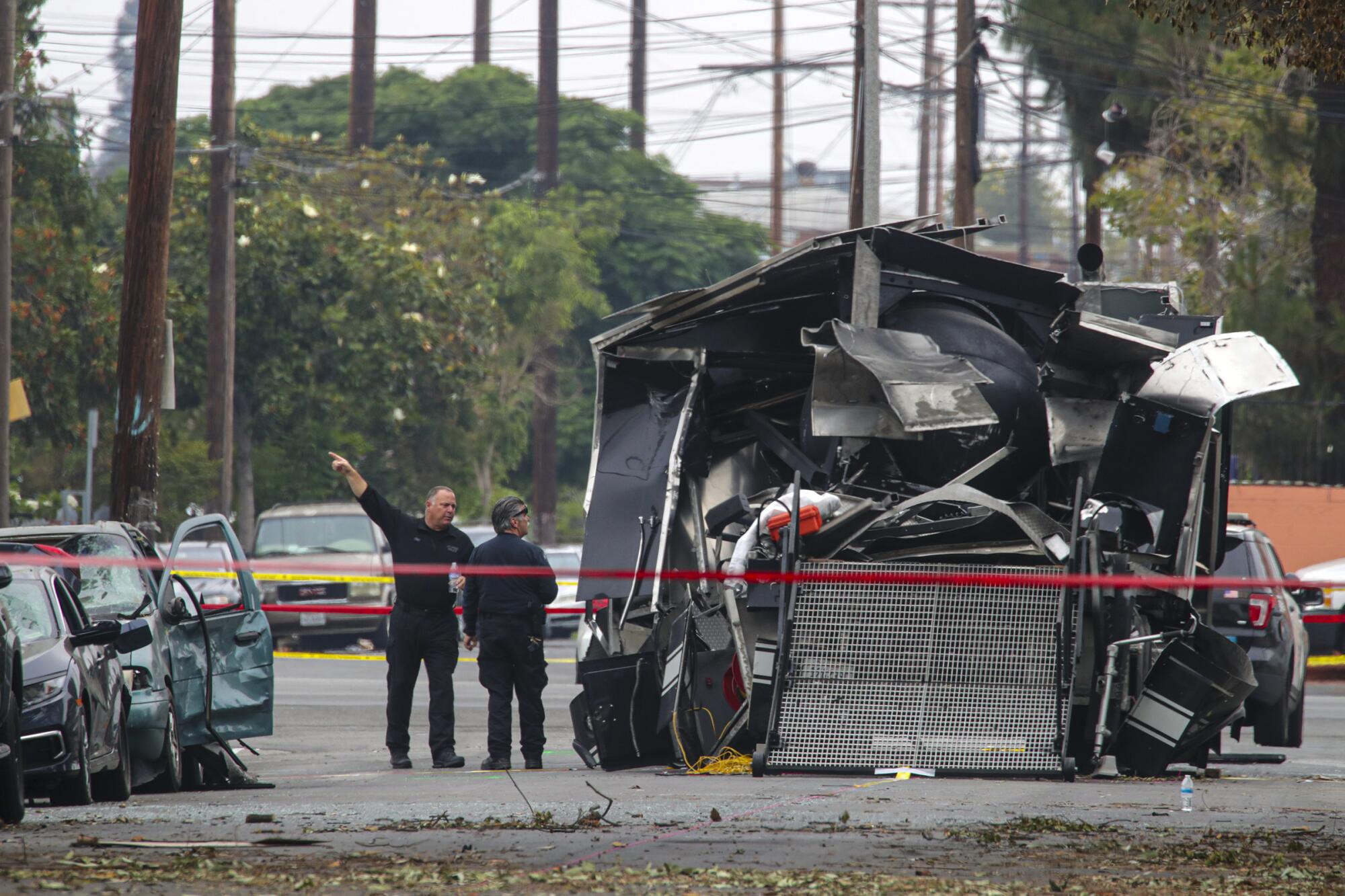
JULY
July 1: The Los Angeles City Council approves a package of restrictions on encampments near homeless shelters, day-care centers and an array of other public facilities. Critics say the measures further criminalize homelessness.
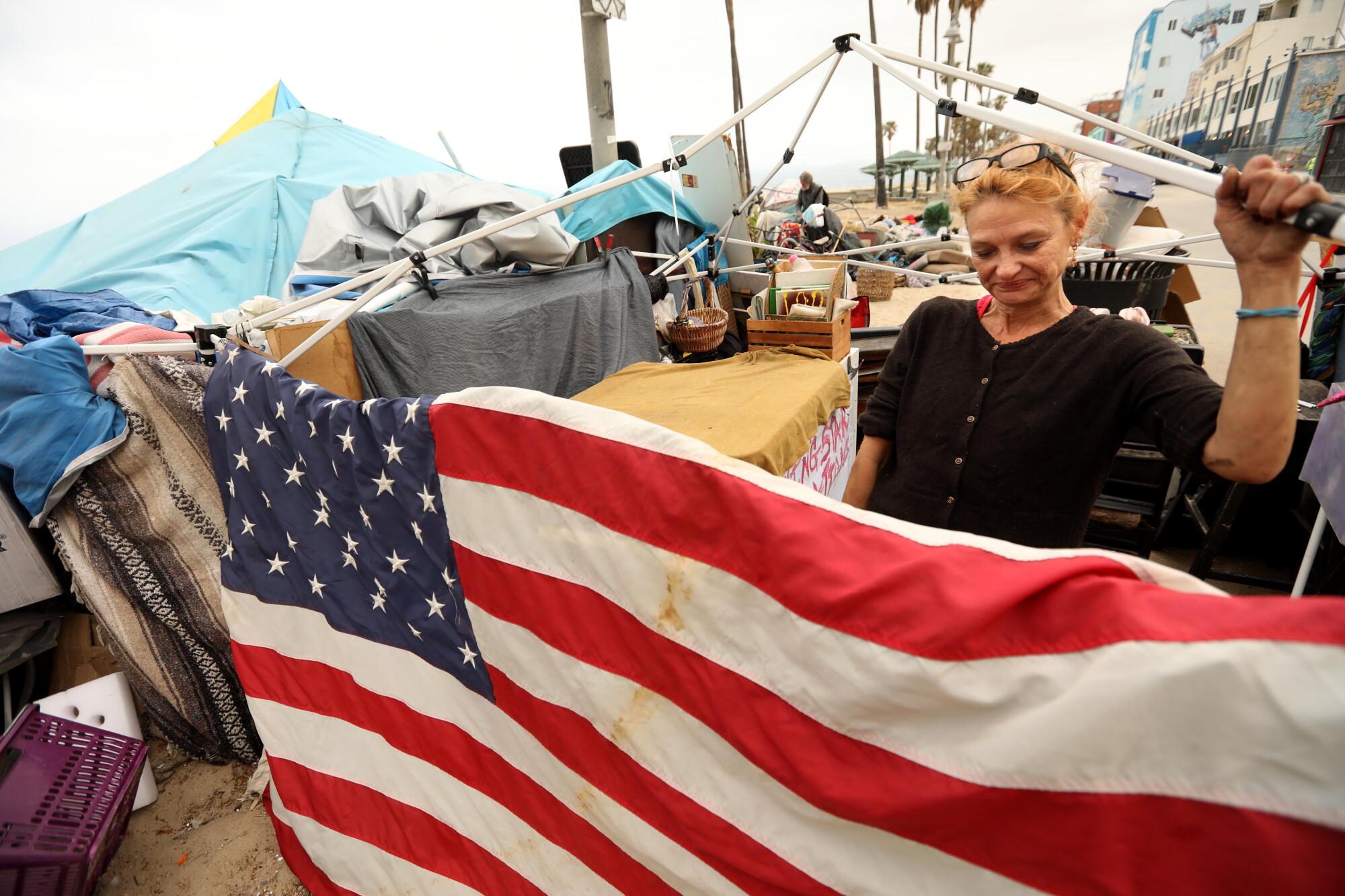
July 1: California Lt. Gov. Eleni Kounalakis sets Sept. 14 as the date for the recall election targeting Gov. Gavin Newsom.
July 1: The Justice Department halts federal executions after a historic use of capital punishment by the Trump administration, which carried out 13 executions in six months.
July 1: After nearly 20 years, the U.S. military leaves Bagram Airfield, the epicenter of its war to oust the Taliban in Afghanistan and hunt down the Al Qaeda perpetrators of the 9/11 terrorist attacks.
July 1: The World Series champion Dodgers become the first professional sports team to visit the White House since the start of the pandemic.
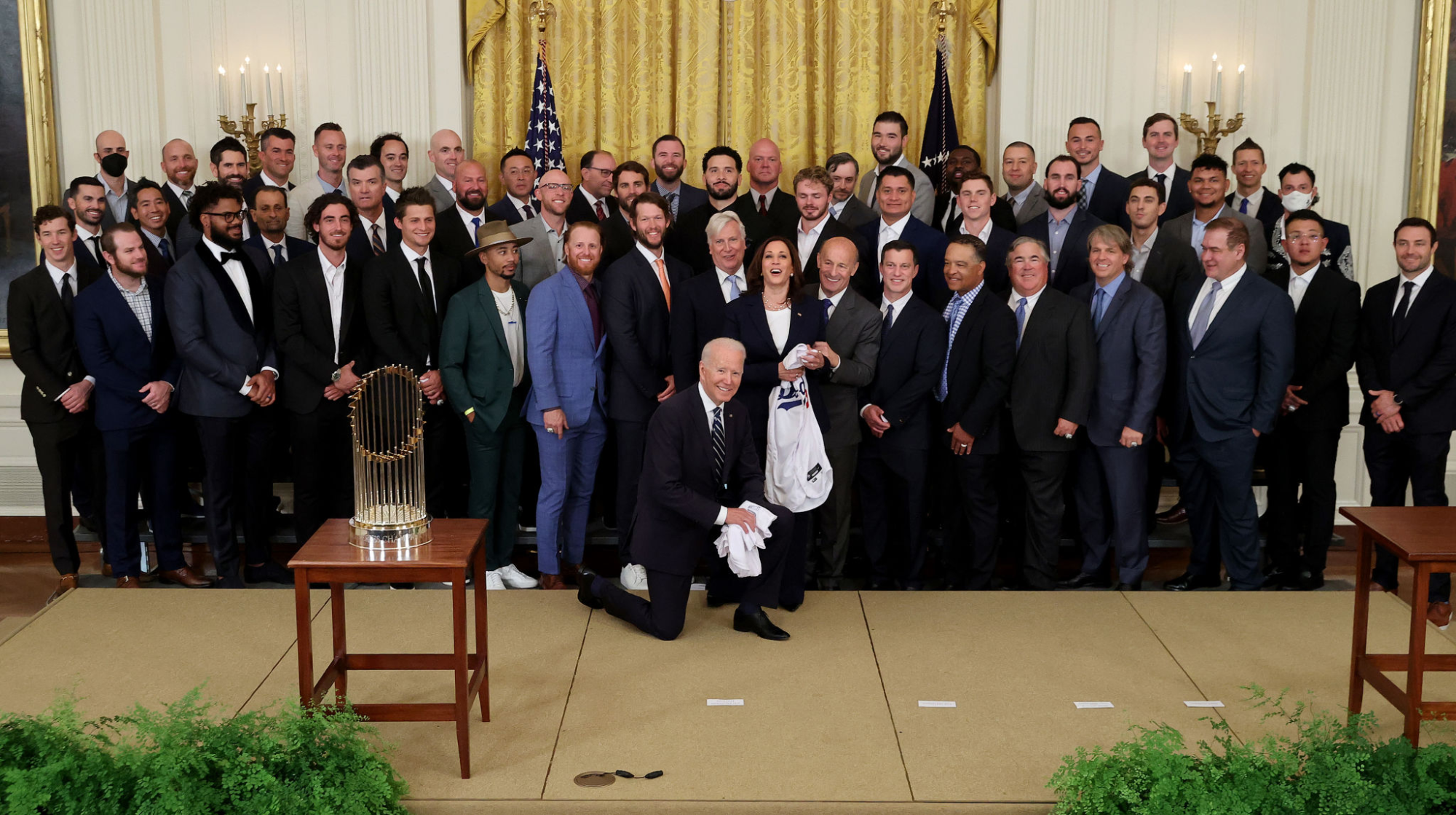
July 7: Haitian President Jovenel Moise is assassinated in an attack on his private residence.
July 8: Gov. Gavin Newsom asks Californians to voluntarily cut back on household water consumption by 15% as drought conditions worsen and temperatures continue to rise across the western United States.
July 11: Lake Mead, a lifeline for water in Los Angeles and the West, tips toward a crisis as water levels drop.

July 11: Marvel’s “Black Widow” opens, with an estimated $80 million in U.S. and Canadian ticket sales representing the largest North American box office opening since the pandemic began.
July 15: Jerry Lewis, the longest-serving Republican congressman in California history, dies. He was 86.
July 19: One month after California celebrated a long-awaited reopening by lifting virtually all restrictions on businesses and other public spaces, L.A. County residents will again be required to wear masks in indoor public spaces, regardless of their vaccination status.
July 19: The University of California reports that it admitted its largest, most diverse undergraduate class ever for fall 2021. Among California applicants, Latinos were the largest group admitted for the second year in a row, making up 37% of the 84,223 students offered freshman seats.
July 20: U.S. life expectancy fell by a year and a half in 2020, the largest one-year decline since World War II, the Centers for Disease Control and Prevention reports. Much of the decline was attributed to the pandemic.
July 20: Giannis Antetokounmpo ends what many call one of the greatest NBA Finals ever with 50 points and a championship Milwaukee waited 50 years to win again.

July 23: After a yearlong delay because of the COVID-19 pandemic, the 29th Olympic Summer Games begin in Tokyo with a traditional opening ceremony celebration.

July 27: Simone Biles stuns the sports world by withdrawing from the women’s gymnastics competition at the Olympics to focus on mental health issues.

July 29: U.S. gymnast Sunisa Lee wins the all-around gold medal. Lee’s victory brought light and life to a stripped-down, often joyless Olympics.

July 31: TikTok star Anthony Barajas, who was shot with a friend inside a Corona movie theater, dies after being removed from life support.
July 31: On the final day of swimming, Caeleb Dressel wins gold in the 50-meter freestyle and the 4x100 medley relay to cap off an impressive Olympic performance.
AUGUST
Aug. 6: Southern California-raised athletes April Ross and Alix Klineman take the gold medal in women’s beach volleyball at the Tokyo Olympics.

Aug. 8: The Dixie fire becomes the second-largest wildfire in California history, burning more than 463,000 acres through a large swath of Northern California and destroying more than 400 homes and commercial buildings.
Aug. 10: New York Gov. Andrew Cuomo announces that he will resign in 14 days after a report finds credible claims of sexual misconduct. He will be succeeded by Lt. Gov. Kathy Hochul, who will become the state’s first female governor.
Aug. 11: California Gov. Gavin Newsom orders school employees to be vaccinated or tested regularly.
Aug. 12: The Biden administration, struggling to contain the rapid collapse of much of Afghanistan to Taliban forces, announces it will be pulling many U.S. Embassy personnel out of Kabul and urges American citizens to leave the country immediately.
Aug. 13: James Hormel, a philanthropist and the first U.S. ambassador to have come out as gay, dies at 88.
Aug. 15: Taliban militants complete their takeover of Afghanistan, moving into the capital of Kabul and demanding the unconditional surrender of the Afghan government.
Aug. 16: Chaos erupts at Kabul’s airport as thousands of Afghans try to flee the Taliban takeover of the country, clambering over barriers, thronging the tarmac and even clinging to the side of a departing U.S. military transport plane before falling off.
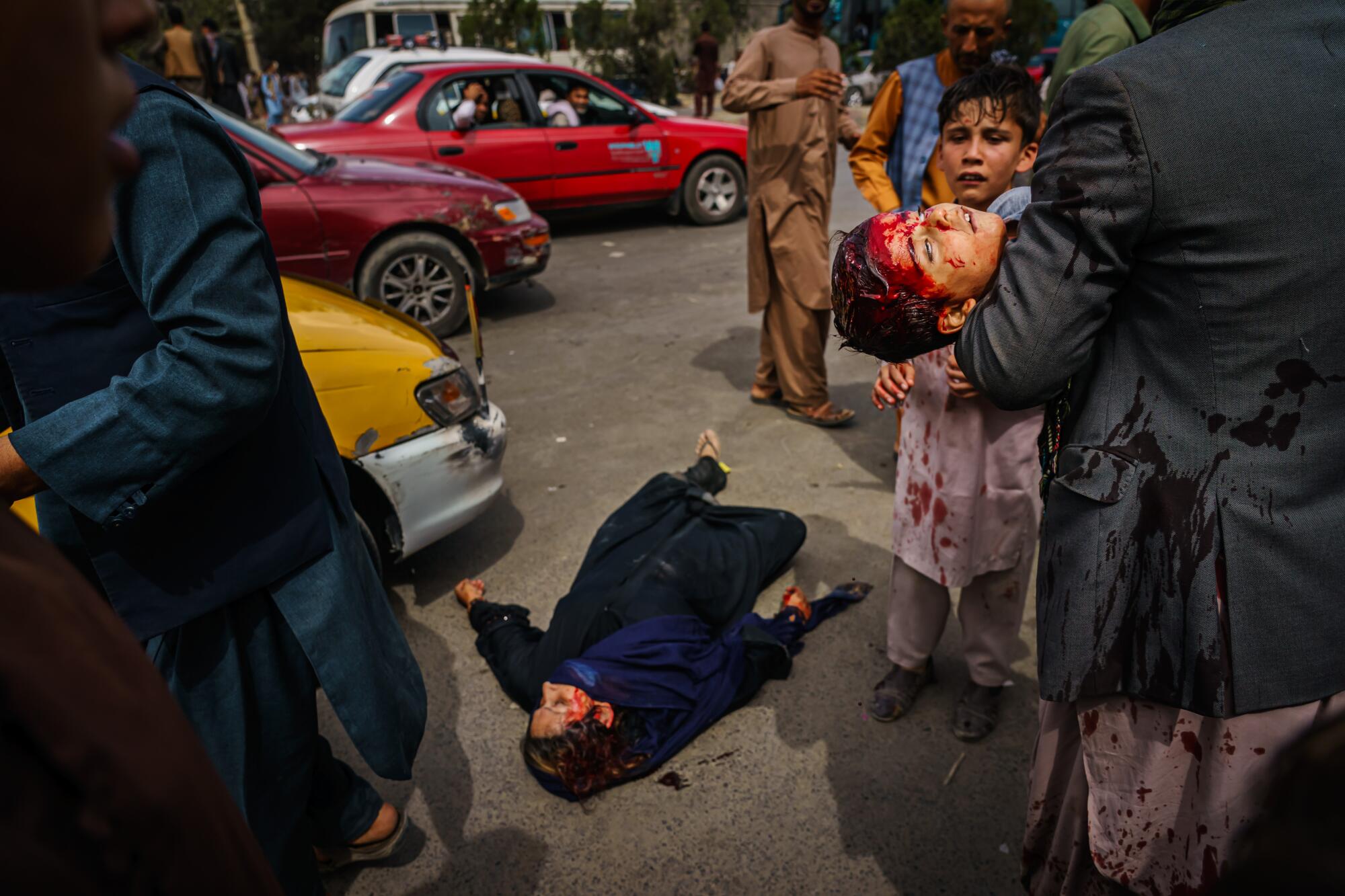
Aug. 16: More than a year after the COVID-19 pandemic forced schools to close their doors, hundreds of thousands of Los Angeles-area students return to in-person education.
Aug. 18: The Biden administration accelerates federal efforts to combat the resurgent pandemic, requiring nursing home workers to be vaccinated and imploring private businesses to mandate inoculations for staff.
Aug. 19: OnlyFans says it will stop allowing sexually explicit content starting in October, leaving many sex workers wondering how they’ll earn a living.
Aug. 22: At least 22 people are killed and dozens remain missing after record-breaking rain sends floodwaters surging through Tennessee.
Aug. 23: The battle against COVID-19 passes a regulatory milestone as the Food and Drug Administration grants full approval to Pfizer’s vaccine.
Aug. 24: Rolling Stones drummer Charlie Watts dies at age 80.
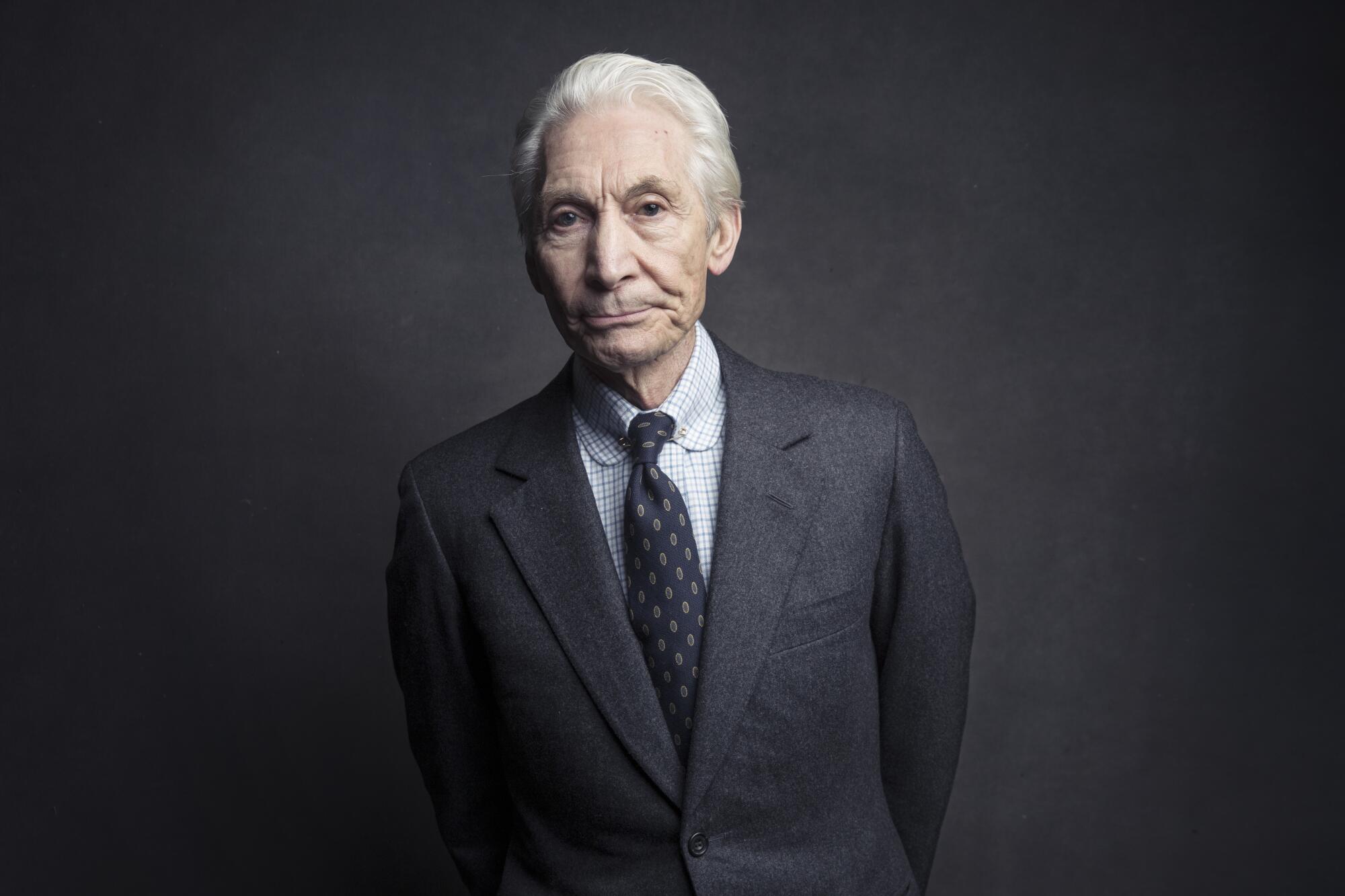
Aug. 25: Less than a week after the company sent shock waves through the adult entertainment industry, OnlyFans reverses course and says it will continue to support explicit content on its platform.
Aug. 26: Dozens of Afghan civilians and 13 U.S. service members, including four Marines from California, are killed by suicide bombers at the airport in Kabul, Afghanistan. The troops had been providing security as Afghans tried to flee the country.
Aug. 29: Ed Asner, Emmy-winning actor who played the gruff but lovable Lou Grant on “The Mary Tyler Moore Show,” dies at 91.
Aug. 31: More than 80% of eligible Californians have received at least one dose of COVID-19 vaccine, officials announce.
SEPTEMBER
Sept. 1: By a 5-4 vote, the Supreme Court clears the way for Texas to enforce a ban on abortions beyond six weeks of pregnancy.
Sept. 6: Michael K. Williams dies at 54. “The Wire” actor had been poised to win his first Emmy.
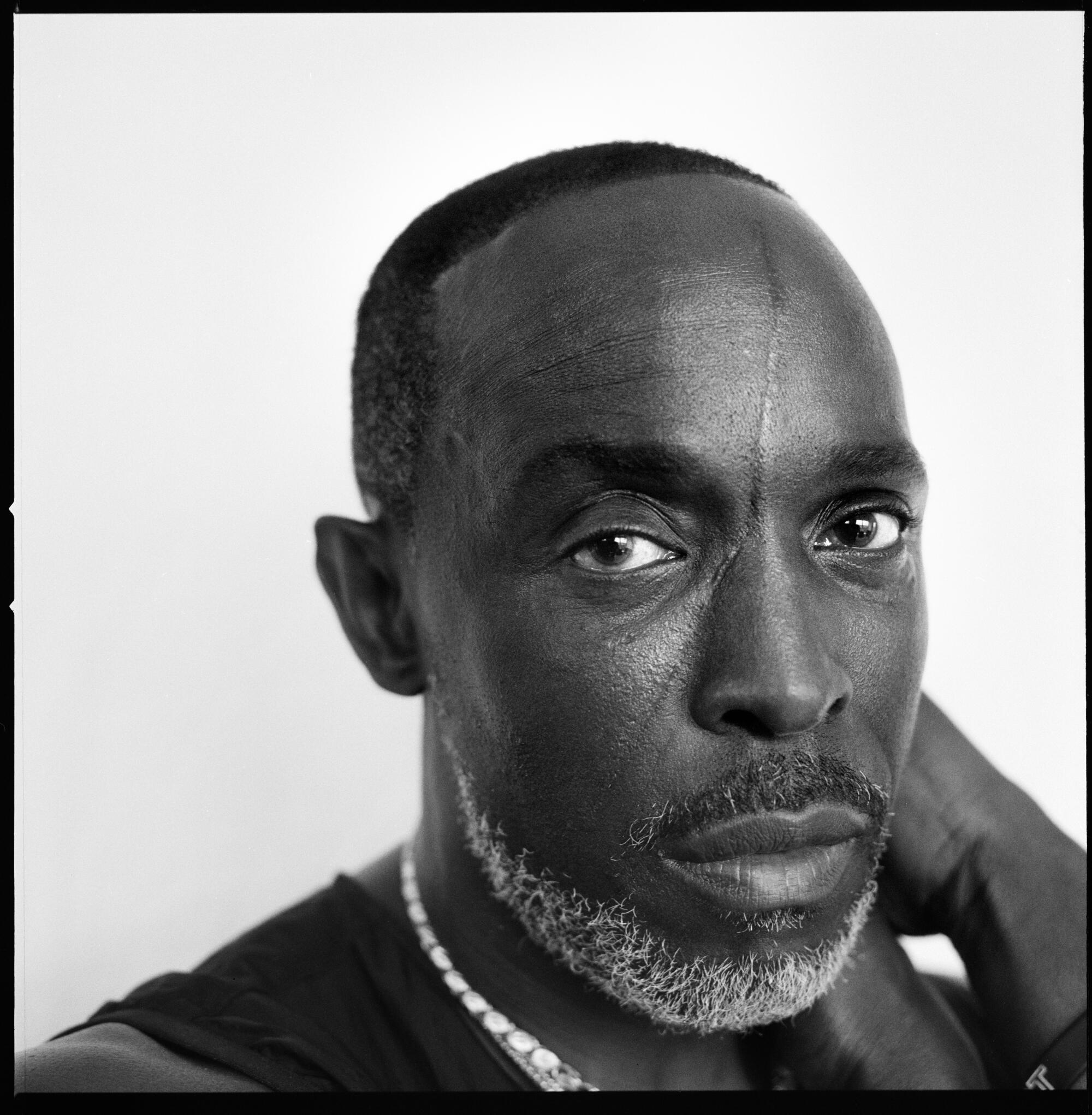
Sept. 7: El Salvador becomes the first country to accept Bitcoin as legal tender, a controversial move pushed by the young, authoritarian and exceptionally popular president, Nayib Bukele.
Sept. 7: Mexico’s Supreme Court unanimously annuls portions of a law in Coahuila — a state on the Texas border — that had made abortion a criminal act.
Sept. 7: Texas Gov. Greg Abbott signs into law an election overhaul that Democrats denounce as a Republican effort to restrict voting access. Among other provisions, the law bans 24-hour polling places and drive-through voting. Texas joins at least 18 states in enacting voting restrictions since the 2020 election.
Sept. 8: The death toll in Louisiana from Hurricane Ida rises to 26 after health officials report deaths in New Orleans, mostly older people who perished from the heat.
Sept. 9: School officials order that all children 12 and older in Los Angeles public schools must be fully vaccinated against COVID-19 by January to enter campus. It’s the first such mandate among the nation’s largest school systems.
Sept. 11: With prayers, song, the tolling of bells and the somber recitation of names of the dead, the U.S. observes the 20th anniversary of the Sept. 11 terrorist attacks.
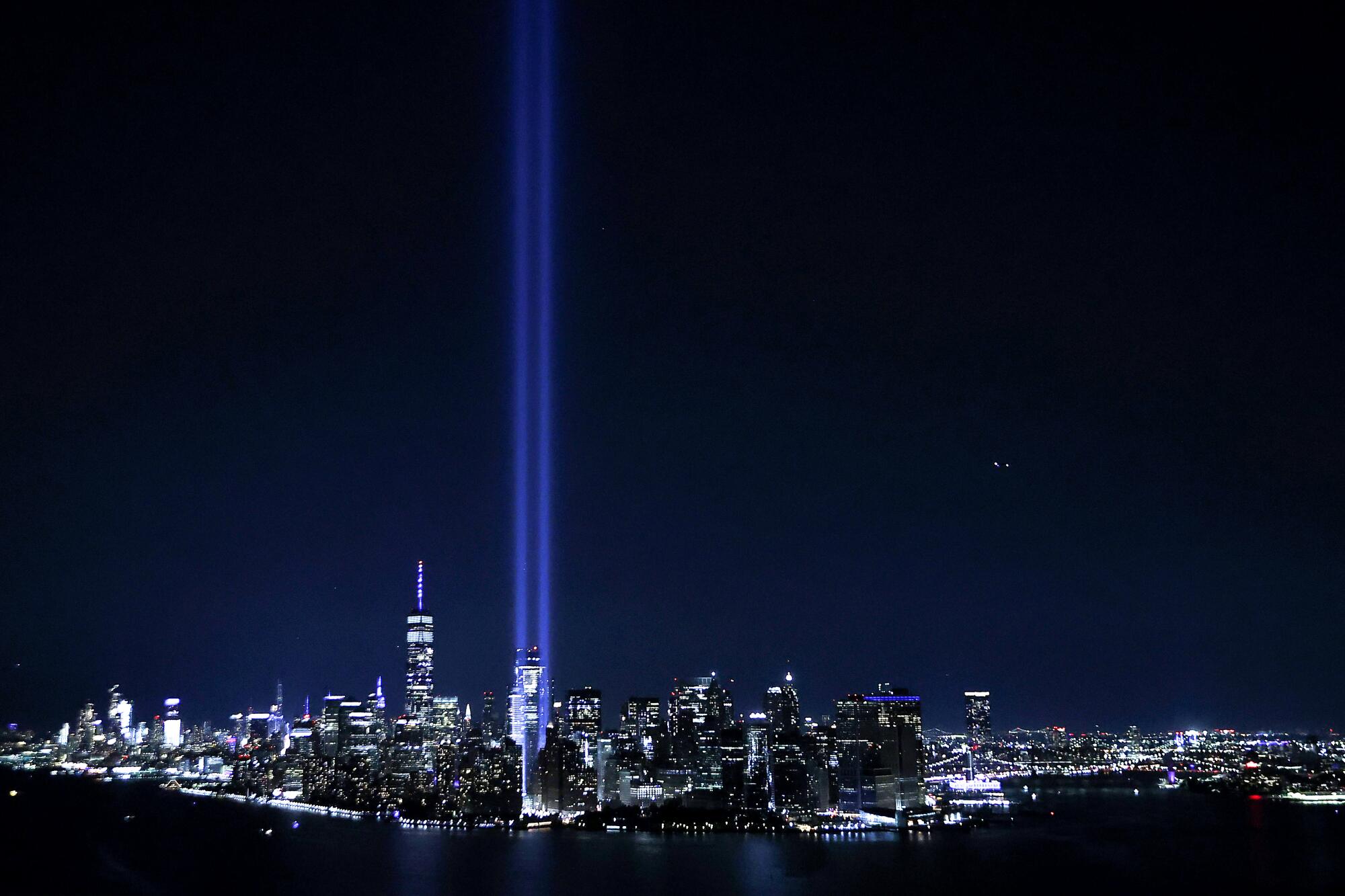
Sept. 13: Federal investigators report that Los Angeles police badly miscalculated the amount of fireworks they placed into a containment vessel before detonating them and causing a massive explosion that destroyed part of a South L.A. neighborhood in June.
Sept. 14: California Gov. Gavin Newsom defeats a historic recall attempt by about a 2-to-1 margin.
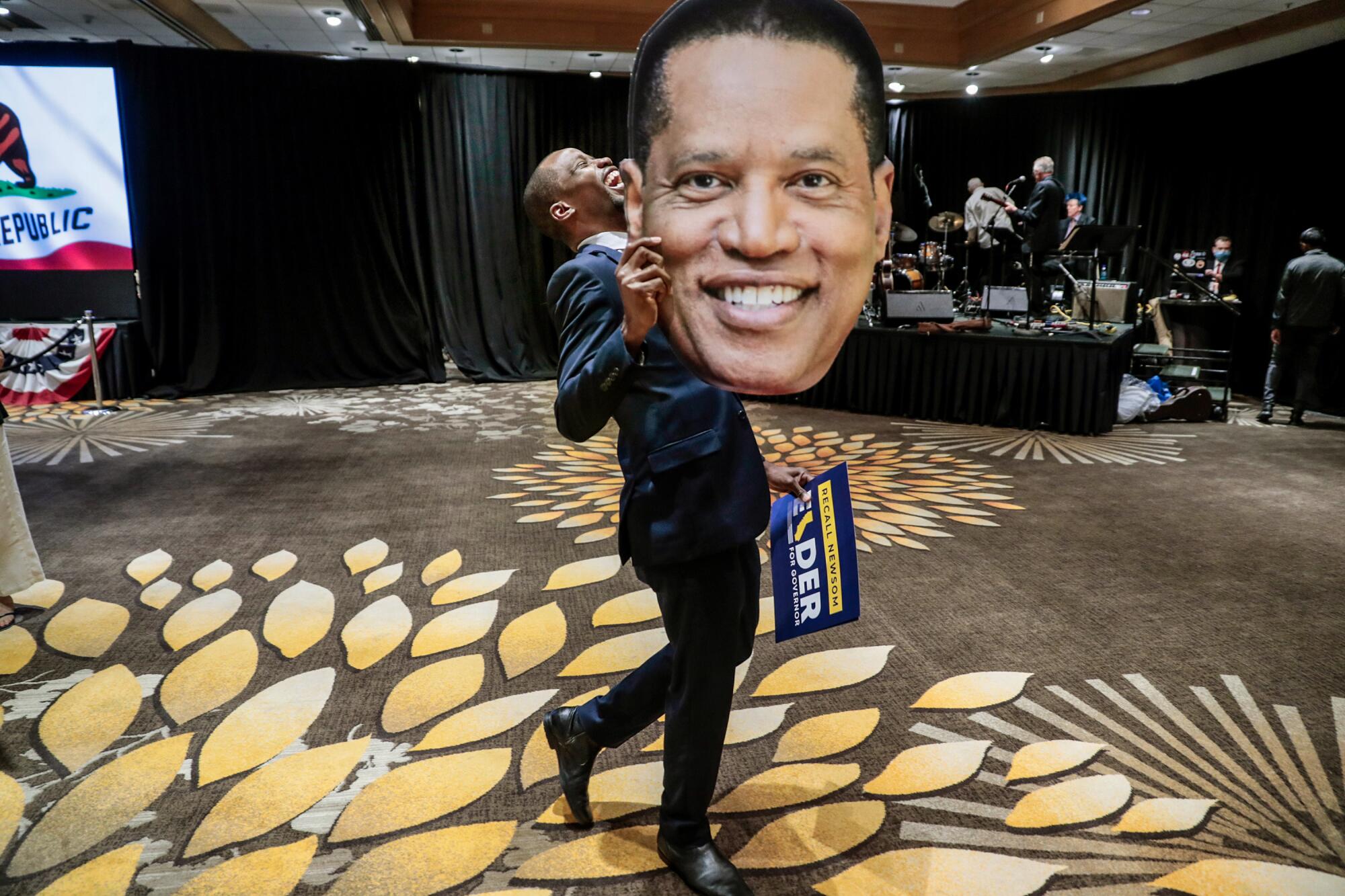
Sept. 20: George Holliday, who videotaped the police beating of Rodney King in 1991, forever changing Los Angeles and his own life, dies from complications of COVID-19.
Sept. 20: Homeland Security Secretary Alejandro N. Mayorkas says the department will investigate actions by horse-mounted Border Patrol agents who confronted Haitian migrants in south Texas. In videotaped and photographed scenes President Biden will later condemn as “beyond an embarrassment,” some agents appear to wield the reins like whips.
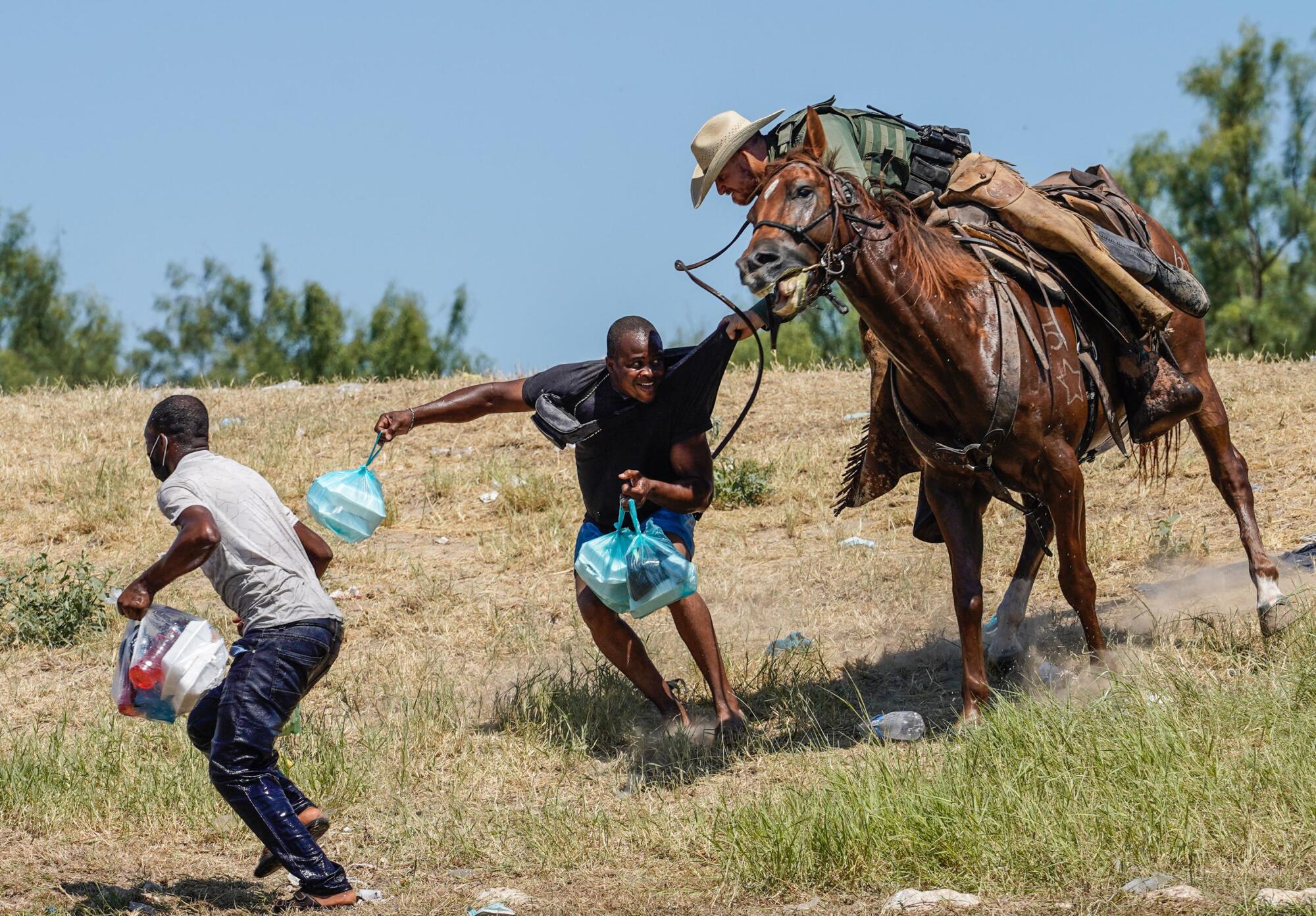
Sept. 23: Gov. Gavin Newsom signs a $15-billion package to fight climate change, wildfire and drought.
Sept. 27: Century City’s Creative Artists Agency says that it is acquiring ICM Partners for an undisclosed price, in a deal that could transform Hollywood’s talent agency industry.
Sept. 29: Britney Spears’ father is suspended as conservator of the singer’s estate after 13 years.
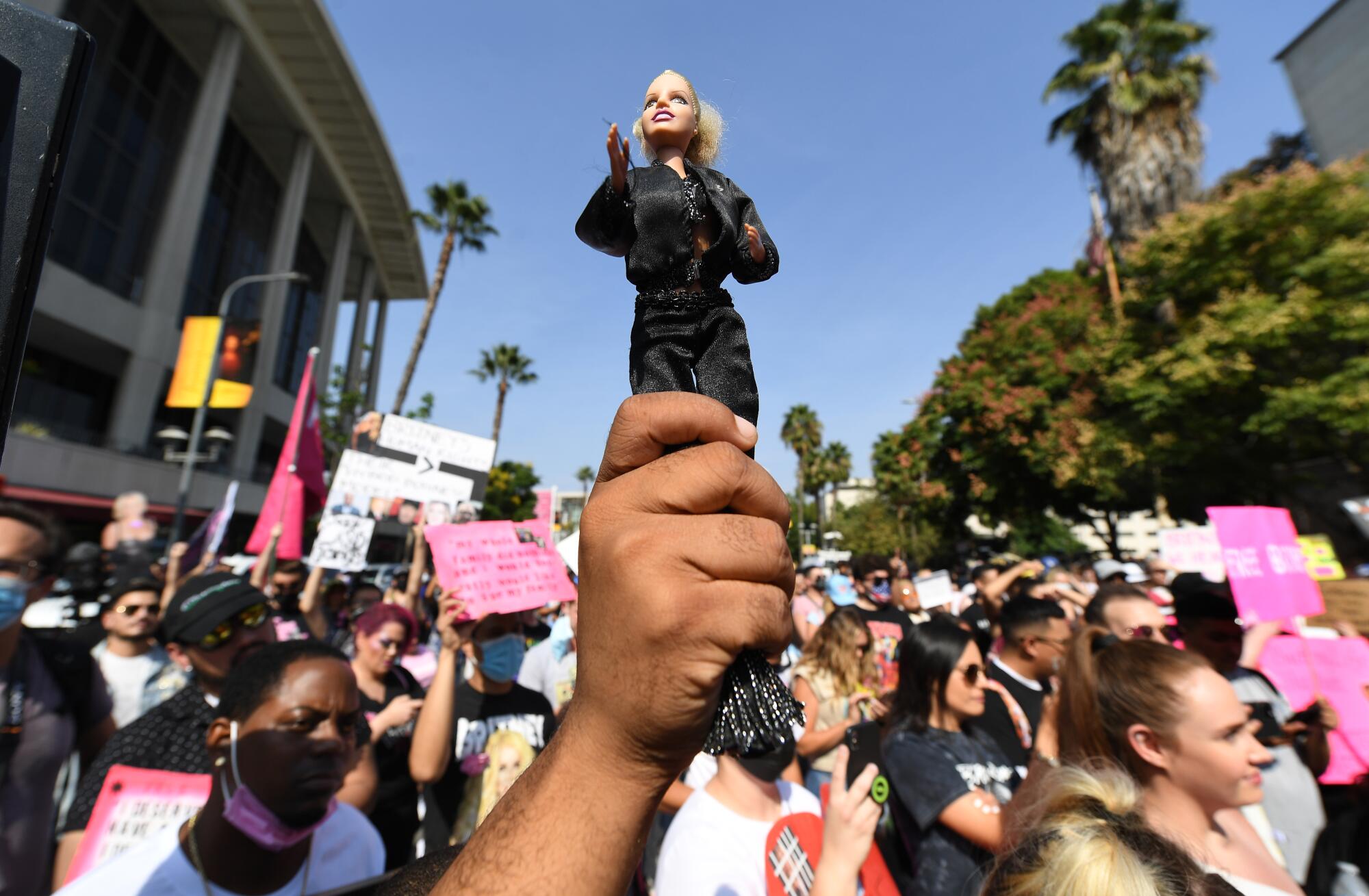
Sept. 30: In a history-making move celebrated by reparations advocates, Gov. Gavin Newsom authorizes the return of property known as Bruce’s Beach to the descendants of a Black couple who were run out of Manhattan Beach almost a century ago.
Sept. 30: The water year comes to a close. In coming days, officials will report that California experienced its driest year in terms of precipitation in a century.
OCTOBER
Oct. 1: Gov. Gavin Newsom orders COVID vaccines for eligible students, the first state mandate for K-12 schools.
Oct. 2: The U.S. death toll from COVID-19 passes 700,000.
Oct. 2: An oil spill sends nearly 25,000 gallons of crude onto Orange County beaches, killing birds and marine life.
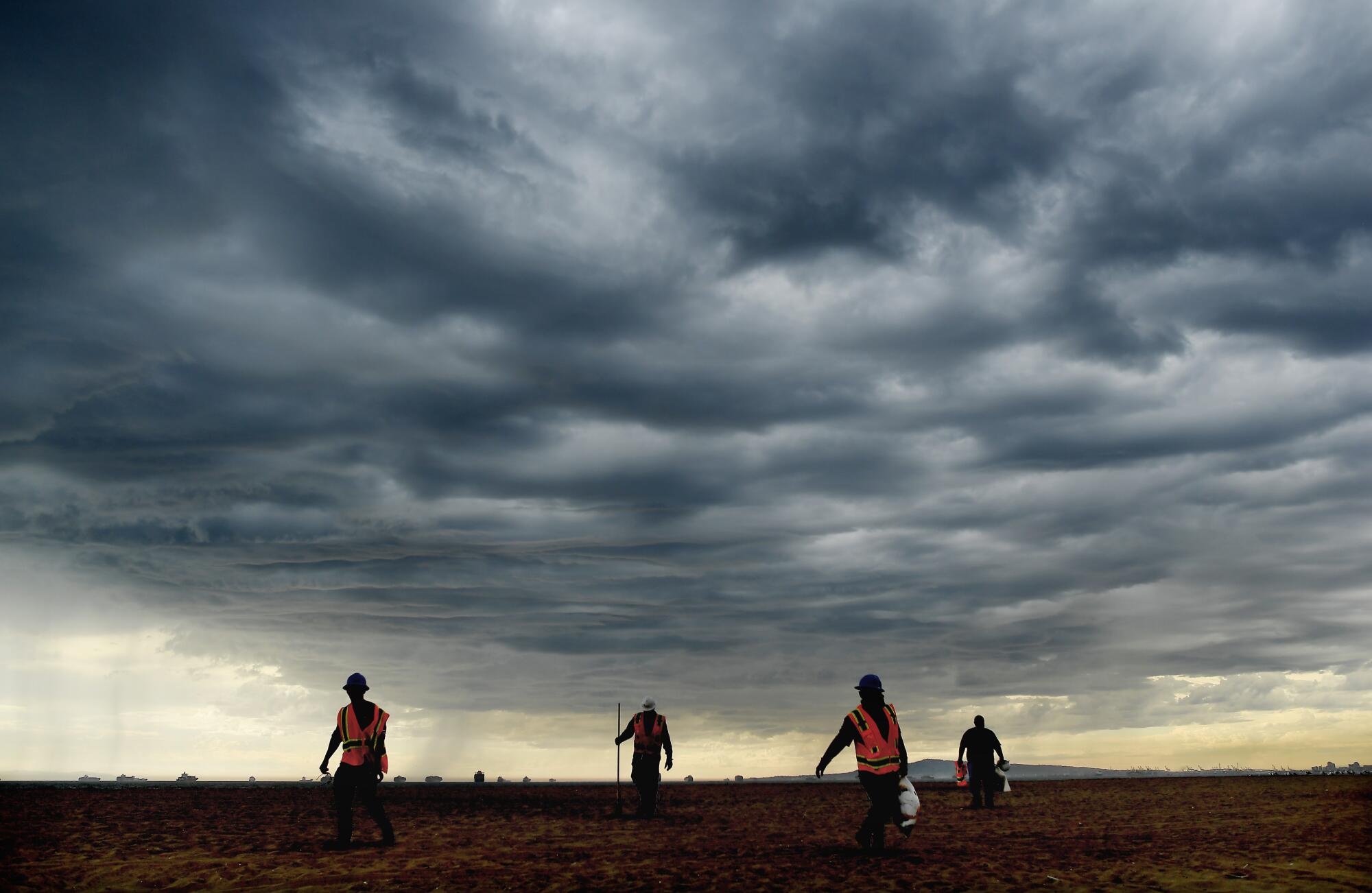
Oct. 6: A federal judge orders Texas to suspend the most restrictive abortion law in the U.S., which since September has banned most abortions in the nation’s second-most populous state.
Oct. 6: The Long Beach Unified School District Board of Education unanimously votes to fire the safety officer who opened fire on a moving car filled with young people, killing a female passenger.
Oct. 6: The World Health Organization endorses the world’s first malaria vaccine, which the director-general calls “a historic moment” and a researcher says “will stop hundreds of thousands of children from dying” in Africa each year.
Oct. 8: After more than five years of intense scrutiny and effort, California becomes the first state to make ethnic studies a required class for high school graduation.
Oct. 11: The California Department of Justice opens an investigation into the oil spill off the Orange County coast.

Oct. 13: President Biden announces that the Port of Los Angeles will operate around the clock to alleviate a pandemic-induced, supply-chain bottleneck.

Oct. 13: Los Angeles City Councilman Mark Ridley-Thomas is indicted on federal charges that he took bribes from a USC dean in exchange for directing millions of dollars in public funding to the university when he was on the Los Angeles County Board of Supervisors.
Oct. 13: “Star Trek” actor William Shatner, 90, becomes the oldest person to go into space when he rockets through the atmosphere as a guest of Blue Origin, the private space company founded by Jeff Bezos.
Oct. 14: USC apologizes to former Japanese American students and offers them honorary degrees posthumously, eight decades after impeding their efforts to complete their education during and after World War II.
Oct. 14: Robert Durst is sentenced to life in prison for murdering longtime confidant Susan Berman in 2000.
Oct. 16: The union representing Hollywood crews reaches an agreement on a new contract with the major studios, avoiding a strike that would have disrupted film and TV production nationwide.
Oct. 19: Gov. Gavin Newsom declares a statewide drought emergency, appealing to all Californians to do more to conserve water in the face of one of the state’s most severe droughts on record.
Oct. 21: Actor and producer Alec Baldwin fires a prop gun on a New Mexico movie set, according to witnesses, killing cinematographer Halyna Hutchins and wounding director Joel Souza. Baldwin will later say he never pulled the trigger.
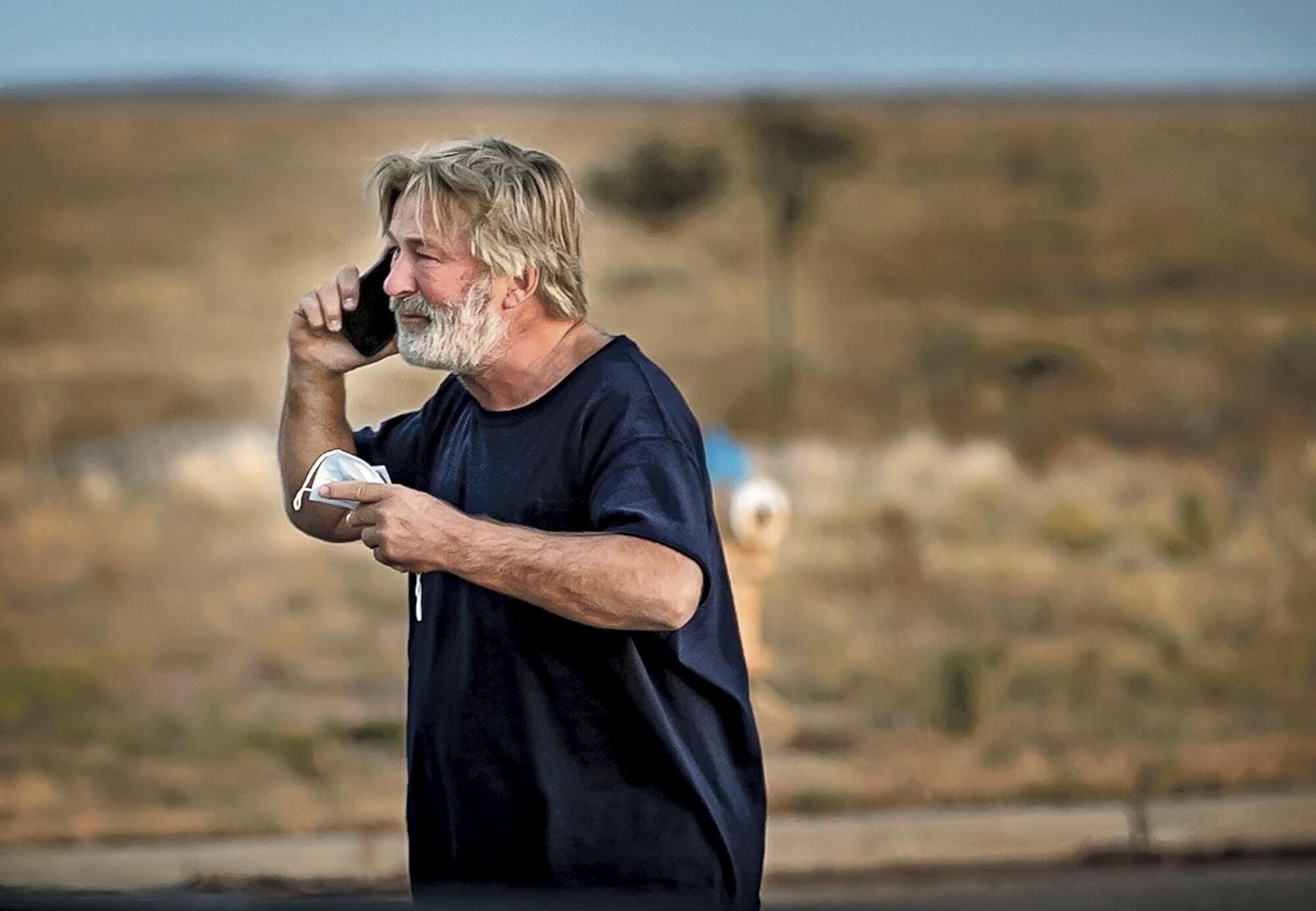
Oct. 24: Warner Bros.’ “Dune” opens in first place at the box office with an impressive $40.1 million.
Oct. 27: The United States issues its first passport with an “X” gender designation — a milestone in the recognition of the rights of people who don’t identify as male or female.
Oct. 28: Facebook changes its corporate name to Meta. The rebranding by the company signals a growing focus on augmented and virtual reality projects.
NOVEMBER
Nov. 2: The Atlanta Braves capture their first World Series title since 1995, defeating the Astros 7-0 in Game 6 at Minute Maid Park in Houston.
Nov. 2: The Centers for Disease Control and Prevention endorses COVID-19 vaccine shots for children ages 5 to 11.
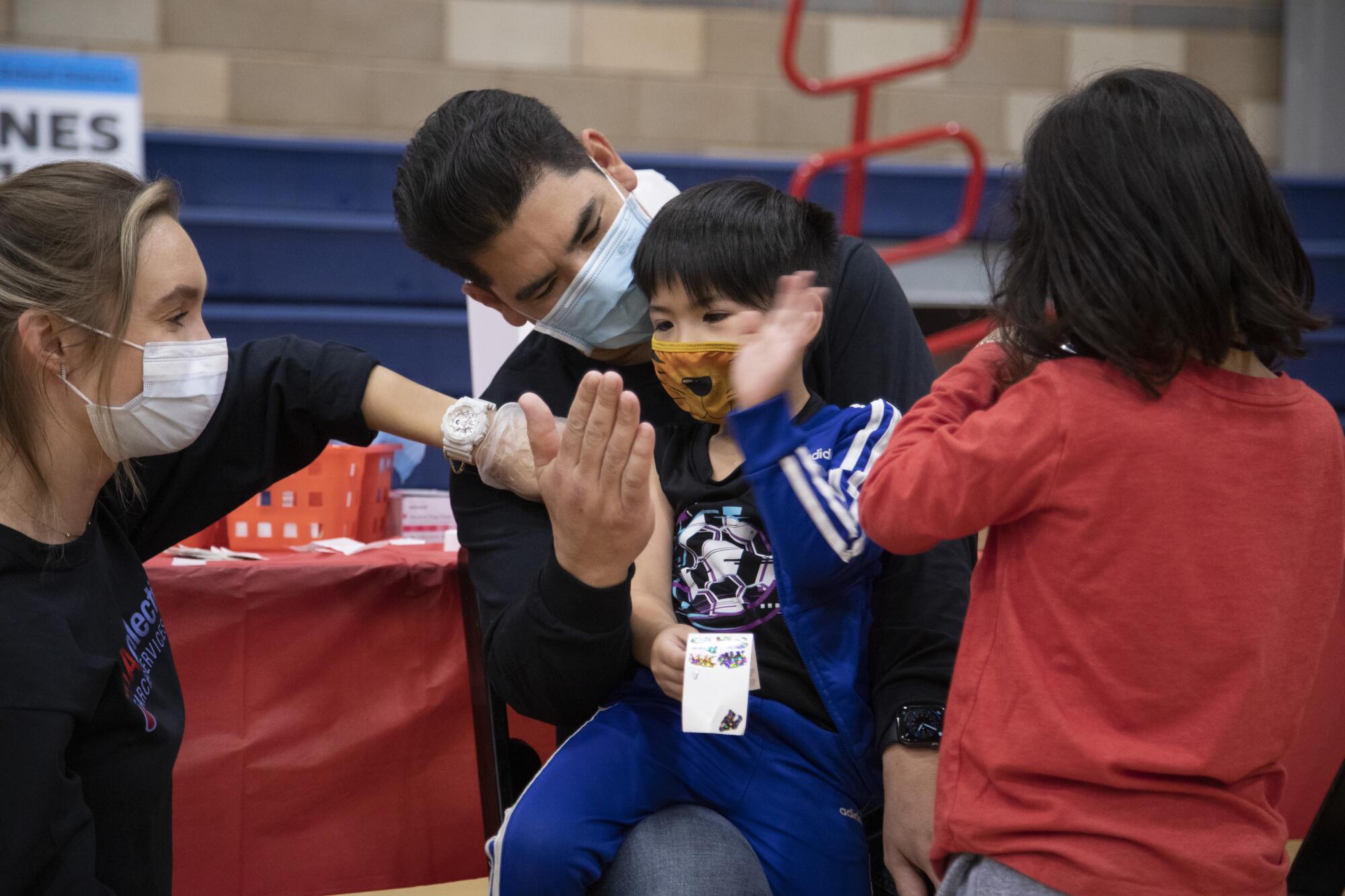
Nov. 2: The L.A. County Board of Supervisors approves a $2.5-million settlement for two families suing over the unauthorized sharing of photos of the Kobe Bryant helicopter crash.
Nov. 5: Eight are dead and at least 25 injured because of a crowd surge at Travis Scott’s Astroworld music festival in Houston.
Nov. 8: The U.S. lifts pandemic restrictions on travel from a long list of countries including Mexico, Canada and most European nations, setting the stage for emotional reunions nearly two years in the making.
Nov. 8: Malala Yousafzai, the 24-year-old Pakistani human rights campaigner, Nobel Peace Prize laureate and survivor of a Taliban shooting, announces her marriage on Twitter.
Nov. 9: Green Bay Packers quarterback Aaron Rodgers admits he “misled people” about his vaccination status when he told reporters he was “immunized” before the start of the NFL season.
Nov. 11: A ninth person, Bharti Shahani, 22, dies from injuries sustained at Travis Scott’s Astroworld concert.
Nov. 13: Hospital workers and management at Kaiser Permanente, one of the nation’s largest healthcare systems, reach a labor agreement two days before nearly 32,000 employees were set to strike.
Nov. 15: President Biden signs a historic $1-trillion bipartisan bill that he says will overhaul the nation’s infrastructure and boost the nation’s economy, which has been battered by the COVID-19 pandemic.
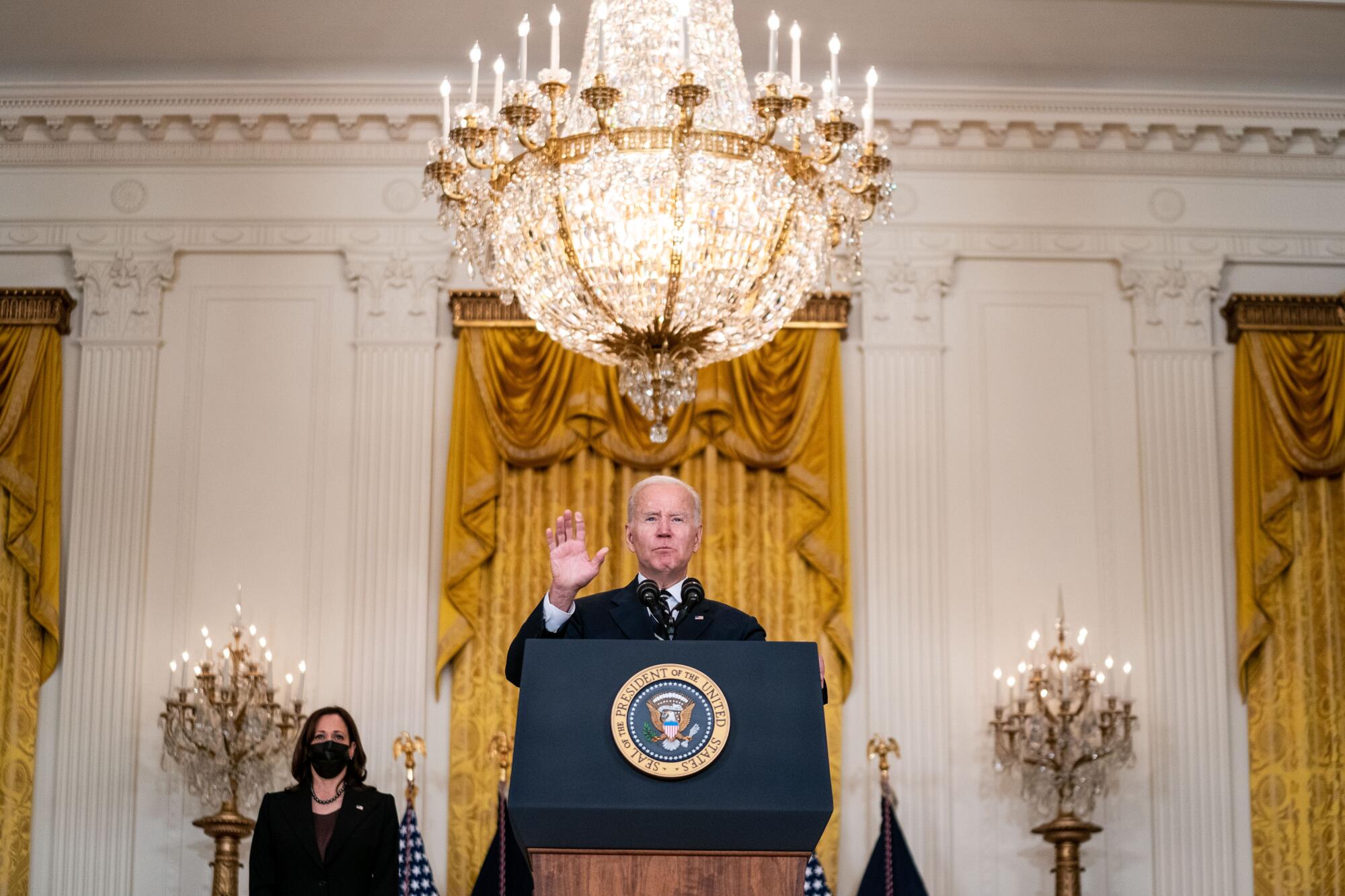
Nov. 16: Staples Center will be renamed Crypto.com Arena under a $700-million deal announced by the Singapore cryptocurrency exchange and AEG, the owner and operator of the arena. It is one of the biggest naming deals in sports history.
Nov. 18: After more than three years of research and debate, the University of California slams the door shut on using any standardized test for admissions decisions.
Nov. 18: Angels two-way star Shohei Ohtani is chosen as the American League’s most valuable player in a unanimous vote.

Nov. 19: Kyle Rittenhouse, who shot and killed two men and wounded another as violent protests against police brutality engulfed Kenosha, Wis., last year, is acquitted of all charges in a case that had amplified bitter national debate over guns, vigilantism, and law and order.
Nov. 24: Three white men are found guilty of murdering Ahmaud Arbery, a 25-year-old Black man whose shooting death last year helped fuel a national debate on racial profiling and vigilantism.
Nov. 24: South African officials say that a new coronavirus variant has been detected in the country. In days to come it will be called the Omicron variant.
Nov. 26: Stephen Sondheim, the award-winning composer-lyricist who took the Broadway musical to a higher level of emotional complexity than his predecessors in shows such as “Company,” “Follies” and “Sweeney Todd,” dies. He was 91.
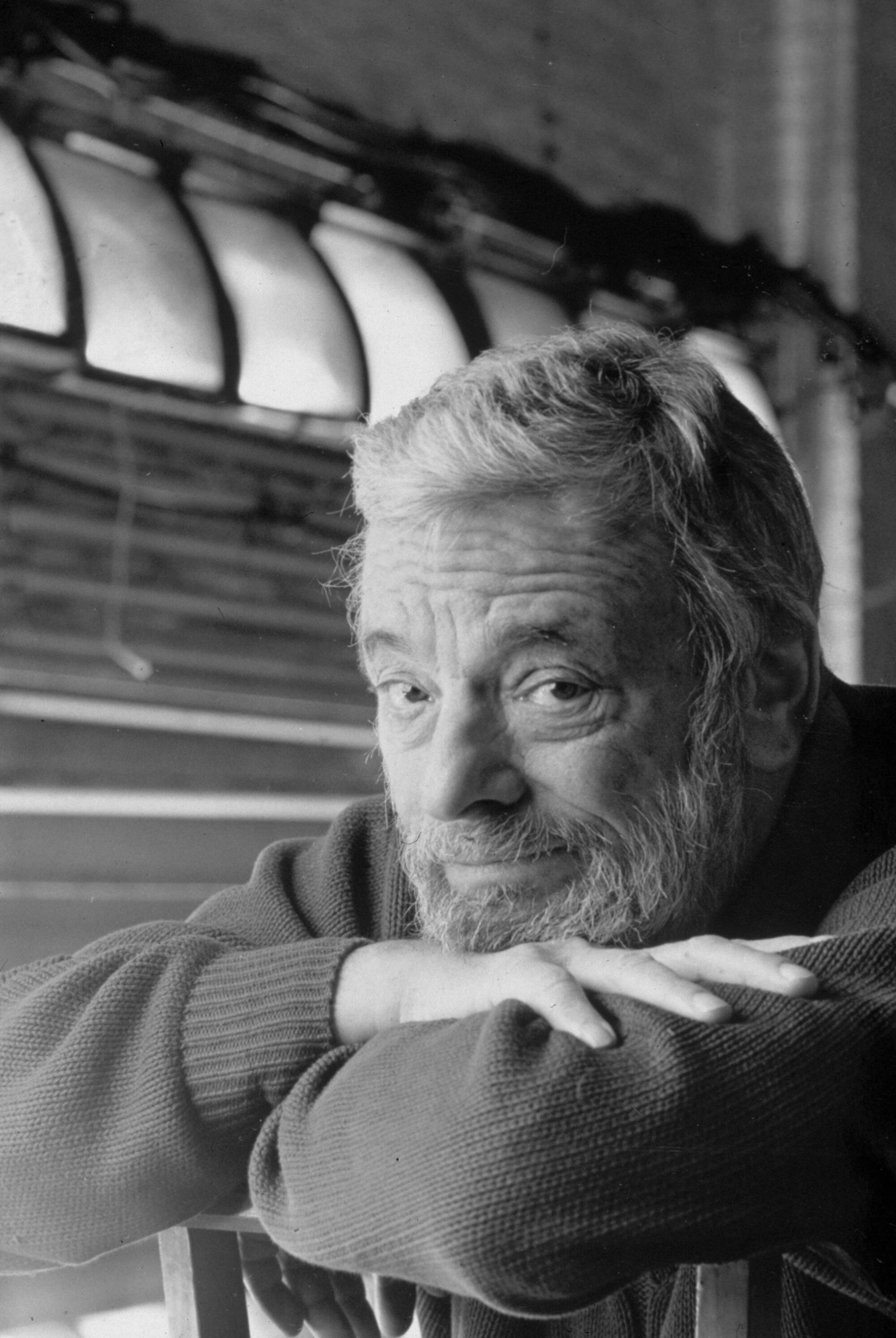
Nov. 28: Designer Virgil Abloh, a leading fashion executive hailed as the Karl Lagerfeld of his generation, dies of cancer. He was 41.
Nov. 29: Jack Dorsey steps down as Twitter’s chief executive.
Nov. 30: Advisors to the U.S. Food and Drug Administration recommend the agency authorize a new pill that patients with early cases of COVID-19 can take at home.
Nov. 30: A 15-year-old sophomore, Ethan Crumbley, opens fire at his high school in Michigan, killing four students and wounding eight other people. His parents, James and Jennifer Crumbley, will be arrested days later and each charged with four counts of involuntary manslaughter.
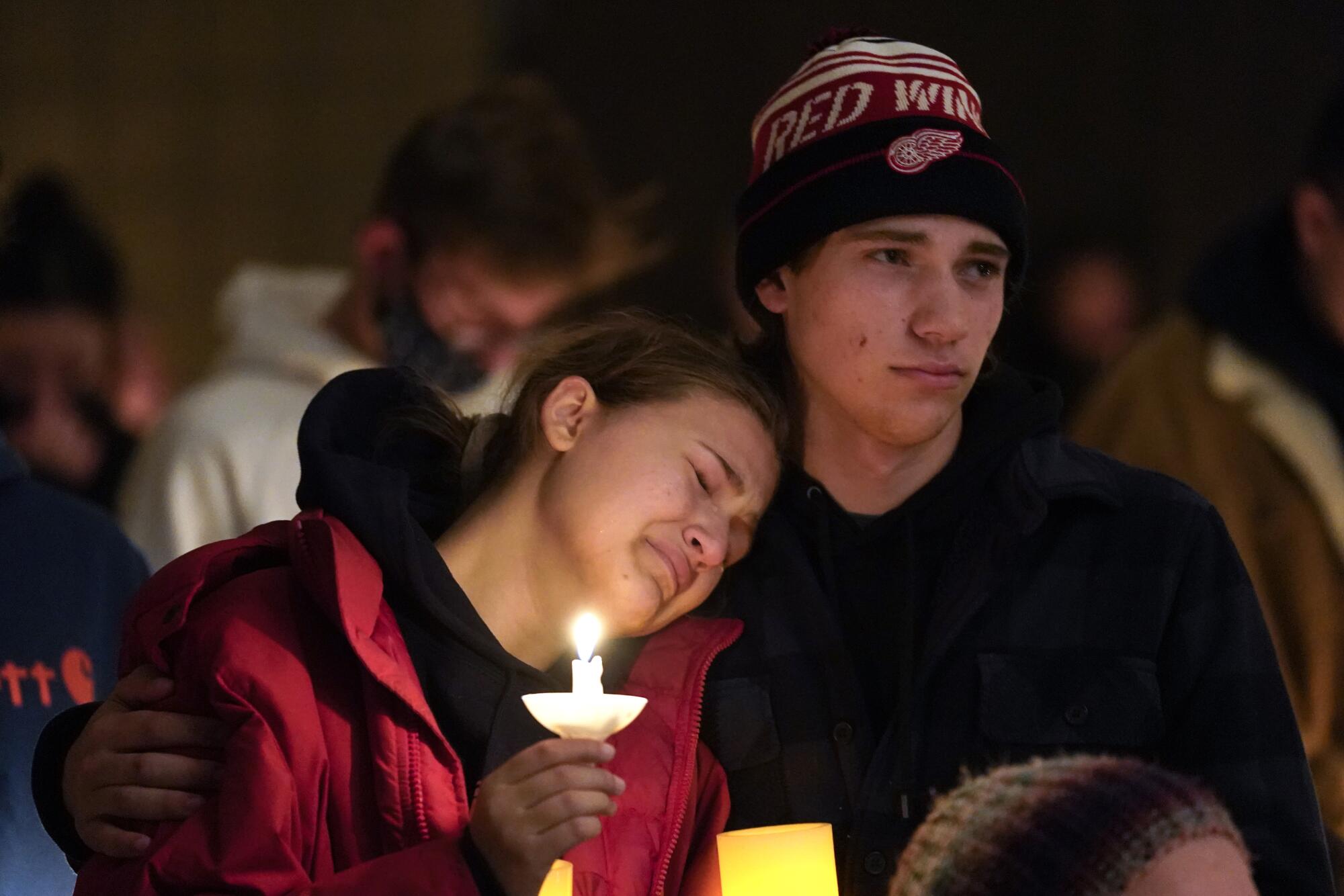
DECEMBER
Dec. 1: During arguments over a Mississippi law restricting abortion, the Supreme Court’s conservatives sound ready to severely restrict a woman’s right to choose abortion and possibly overturn Roe vs. Wade entirely.
Dec. 1: Jacqueline Avant, a Los Angeles philanthropist and wife of legendary music producer Clarence Avant, is shot and killed in her Beverly Hills home.
Dec. 2: Migrants seeking to enter the United States will again have to stay in Mexico as they await immigration hearings, as the Biden administration reluctantly announces plans to reinstate the Trump-era “Remain in Mexico” policy.
Dec. 4: CNN fires broadcaster Chris Cuomo following revelations about his involvement in managing the sexual harassment scandal that forced his brother, Andrew, to resign as governor of New York.
Dec. 5: Bob Dole, longtime Republican leader, Kansas senator and unsuccessful presidential candidate, dies. He was 98.
Dec. 7: President Biden warns Russian counterpart Vladimir Putin that invading Ukraine would result in stiff economic sanctions from the U.S. and several European allies.
Dec. 7: On the 80th anniversary of the Japanese attack on Pearl Harbor, a few dozen survivors from that day gather to remember the thousands killed in the attack that launched the U.S. into World War II.
Dec. 8: Nearly 500 Los Angeles school district employees are fired for failing to meet the COVID-19 vaccination requirement.
Dec. 9: Alberto Carvalho, among the nation’s most experienced and admired school district leaders, is named the next superintendent of the Los Angeles Unified School District.
Dec. 9: Italian filmmaker Lina Wertmüller, the first Oscar-nominated female director, whose work tackled political and social issues, dies at 93.
Dec. 9: Former “Empire” actor Jussie Smollett is convicted of charges he staged an anti-gay, racist attack on himself and then lied to Chicago police about it.
Dec. 10: The Supreme Court refuses to block a Texas law that has banned most abortions there but opens the door narrowly for abortion providers to challenge it before a federal judge.
Dec. 10: At least 79 people — most of them in Kentucky — are killed after a series of tornadoes tear through the Midwest and Southeast.
Dec. 12: Singer Vicente Fernández, a musical icon in Mexico and throughout the Spanish-speaking world, dies at 81.
Dec. 12: “Interview With the Vampire” novelist Anne Rice, who wrote 30 books that sold 150 million copies worldwide, dies at 80.
Dec. 13: Faced with rising coronavirus cases, California orders a statewide mask mandate for indoor public spaces. The order, which will affect roughly half the state’s population, goes into effect Dec. 15.
Dec. 13: A $380-million settlement is reached by USA Gymnastics and hundreds of victims of sexual abuse by former national team doctor Larry Nassar.
Dec. 13: The Golden Globe nominations are announced by the Hollywood Foreign Press Assn., but the entertainment industry greets the news with a collective shrug. Earlier in the year a Times investigation had revealed that the association had no Black members and detailed allegations of financial and ethical lapses within the group.
Dec. 14: The death toll in the U.S. from COVID-19 reaches 800,000.
Dec. 17: The NFL reschedules three games, including one between the Rams and Seattle Seahawks, because of positive coronavirus tests.
Dec. 17: Los Angeles school officials adopt a new policy regarding attendance and coronavirus exposure. Students exposed to the virus will be able to remain in class and not quarantine at home if they test negative for the virus and have no COVID-19 symptoms.
Dec. 19: Los Angeles hip-hop artist Drakeo the Ruler dies from injuries after he was stabbed at the Once Upon a Time in L.A. festival. He was 28.
Dec. 19: Democratic Sen. Joe Manchin III of West Virginia says he can’t support the House-passed version of his party’s massive social spending package, imperiling the centerpiece of President Biden’s domestic agenda.
Dec. 22: The Supreme Court announces it will decide on a fast-track basis whether President Biden has the legal authority to order hospitals and other large employers to require their workers to be vaccinated for COVID-19.
Dec. 23: Joan Didion, the celebrated prose stylist, novelist and screenwriter, dies at 87.
Dec. 23: U.S. health regulators authorize a second pill against COVID-19, providing another easy-to-use medication to battle the rising tide of Omicron infections. The authorization of the Merck drug comes one day after the Food and Drug Administration cleared a pill from Pfizer.
Dec. 23: A suburban Minneapolis police officer who said she confused her handgun for her Taser is convicted of manslaughter in the death of Daunte Wright.
Dec. 24: Delta Air Lines and United Airlines cancel dozens of flights because illnesses largely tied to the Omicron variant have taken a toll on flight crew numbers during the busy holiday travel season.
More to Read
Sign up for Essential California
The most important California stories and recommendations in your inbox every morning.
You may occasionally receive promotional content from the Los Angeles Times.

